|
Really quick– I'll be participating in a panel for the famed and lovely organization TransitCenter this Wednesday. If you're in NYC, stop by! I don't often make it out there and would love to say hello.
Here's TransitCenter's description of the event: The job of a bus operator is demanding. While getting a bus from Point A to Point B safely and on-schedule is their primary focus, their responsibilities extend beyond what the job title suggests. Operators answer questions from passengers, assist with fare payment, and respond to emergencies and passenger issues that may arise during their run. They possess a wealth of knowledge about transit operations that agencies should pay close attention to. Bus operators’ day-to-day interactions with the riders and communities that their buses serve give them a unique perspective on transit service and how it is (or isn’t) meeting people’s needs. What could agencies learn by listening to their bus operators? What don’t riders know about the difficulties of being an operator? And amidst nationwide transit operator shortages, what can agencies do to improve job quality and ensure that operators stay on the job? What can agencies do to better provide operators the opportunity to advance through the ranks? This panel will seek to answer these questions and recognize transit’s unsung heroes. I enjoy listening more than talking, and definitely get more out of the former, but I've been told I'm an effective blabbermouth as well, and I'll do my best to live up to that quality and contribute more to this exciting panel than taking up space in one of those office chairs. The first thing I'll be pointing out is that "getting from point A to point B on-schedule" is actually a lil' further down on my priority list... What is TransitCenter? They're a national group that "works to improve transit in order to make cities more just and environmentally sustainable... Our experience is that the greatest challenges facing transit are human, not technological, and that transit reform depends on high-performing public agencies and strong citizen-led advocacy. To that end, we support, inform, connect, and fund the civic and public leaders working to make transit better." How delightful. See you there. This event will be live-streamed, and available for subsequent online viewing as well. I'll keep you posted. RSVP to the event and learn further details here. Photo courtesy of TransitCenter.
0 Comments
If you've talked to me in the last two years, you've heard me talk about it.
Well, festival submissions are finally underway, and they're paying off; we're an Honorable Mention for Best Drama Short at the Independent Shorts Awards, but more pressingly for this week, an Official Selection at the New Renaissance Film Festival in Amsterdam, where we are nominated for Best International Short! Given the content, I'm thrilled Europe is the first place to see the film. If you're checking in from Amsterdam– Hoi! Read more about the film's genesis here– why's it called Men I Trust? Why did I make it? What's it about? All that and more. Bedankt voor je interesse!! Watch a trailer for the film here. I hope one day to be able to be able to share it at a festival here in Seattle. Work on those SIFF programmers, if you can, about letting this puppy in despite its 33-minute length; films determine their own runtime, and this one told us it couldn't be a minute longer or shorter, never mind SIFF's stipulation for <30-minute shorts. Who do I have to buy a steak dinner to convince them it's a good idea to play probably the festival's first-ever 33-minute feature? Are you in Amsterdam? Buy a ticket to see the film! Block J, baby! Don't forget to vote for Best International Short! Here we go. I held off on publicizing this too much before the MOHAI lecture to avoid confusion, but this event is no less exciting, and in some ways more expansive: I’m part of PLU’s 15th Annual Visiting Writer Series, and will be taking part in a full day of events for students, faculty and more. For those of you in the South End looking for free (And fun! Yes!) things to do, two of the this Thursday's events are open to the public:
Both of these events are on Tacoma’s PLU campus; details here. The book will be for sale, but more importantly– stop in for a chat! I don’t get out to Pierce County too often, and am looking forward to saying hello. It’s an honor to be hosted by award-winning author Wendy Call, and I’m thrilled to speak to her classes as much to the public. Hope to see you there soon! Where: Pacific Lutheran University, 12180 Park Avenue S., Tacoma, WA 98447 When: Thursday, February 27th, 2020 The Writer’s Story: 4 pm in Anderson University Center, Room 133 Reading and Reception: 7 pm in the Scandinavian Center Well, that was amazing. I’m still riding the high of it. Thank you, thank you, thank you for being there. For taking notes from the front row; for sitting in the back leaning in; for finding a seat on the floor on the sidelines. For making it a standing-room only event. There’s no greater compliment. For bringing me home-baked bread! For travelling up from the other side of town through that traffic (I sat through it too!)… For standing in line for who knows how long, that we might have a chance to chat. I’ll never be able to express how much it means to me. For coming even though you started work at 4 A.M. that morning. For being kind in your congratulations, though you may have known the topic better than I. Every person I talk to at these things, every hand I shake and moment of eye contact made– it always feels like the tip of an unrealized iceberg. I always wish for more. To sit and hear all of your thoughts, share in our mutual glow; an impossibility with a crowd this large, but we can hope, or rather recognize, how much we appreciate each other's existence. You’re out there somewhere, being your fabulous self, and I am enormously grateful. It changes and energizes how I think about the world, knowing you and your smile exist. Last night was my version of Jimmy Carter’s “Crisis of Conscience” speech (except not as good, but with a happy ending and more graphs!), and I put every ounce of my heart and soul into it. It’s everything on the subject I can offer at this point in my life, in speech form. Thank you for coming, and in such numbers, making it so huge. Thank you Rachel, for organizing this beast. Thank you Al and Tom, for putting MOHAI and I together. To the lovely tech crew. To Stacie, for gettin' that book out to the people! Video of the speech will be up shortly. And– I mentioned a nice fat bibliography, because it was that kind of speech– check out the PDF below! Because these things are important! So fun! Enjoy! Photos by Tom Eykemans.
UPDATE: Source list added– click the PDF above. This document will make sense once you've heard the speech!
I've thrown my heart and soul into this one. If it's the last public appearance I ever make, or by some tragedy it's the last lecture I'm ever allowed to give, I'll die happy. Everything I am and everything I can offer is in this hour-long piece. This won't be your normal history lecture. They're letting me talk about whatever I want, and I've got some big surprises for you. I have a lot of events lined up this year (including a few that are further out– I'll be in Tacoma the week after next), but if you come to one, come to this one. This is it. This is the most I can possibly offer. Just like my cute lil' Metro bus... It's free! It's fun! It's for everyone! This event is part of MOHAI's History Cafe series; a Seattle Museum Month recommended event; a CrossCut event of the week; an AllEvents, Burbio, and Evensi listed event; a CoMotion UrbanNW listed event; a History Cafe meetup; and a Stranger Recommended Event. Here's the Stranger's writeup. Museum of History & Industry (MOHAI) 860 Terry Ave N, Seattle, WA 98109 Wed Feb 19, 6:30 pm Free Details & directions here. I'll post again after the event, but for this week forgive me if I focus all my energies on getting this one right! Hope to see you there! Well, that was amazing.
What an entirely vindicating evening. To feel the excitement and palpable groundswell of support in the room! Do you know that spine-tingly feeling of history happening now, not tragic history but joyful, a thing that changes your field, your world, forever? The recognition of what was happening then, that it might really get the Big One but who among us would dare to hope... It was a thought we had but did not speak, as we expected the expected. But what a treat instead to see the endearing figure 봉준호 go up time and again, running out of things to say and coming with ever more heartfelt words of gratitude. Thank goodness he isn't the sort to just list a series of names. Upon winning Screenplay he remarked on how although no film is written with an entire country in mind, it's worth celebrating this being the first Oscar South Korea has ever won; later he'd note his excitement at winning International Film in the first year that category had been renamed as such, in his appreciation of what that name change signifies; then, well, everything about that Director speech; and finally his stepping out of the spotlight in favor of other of the film's voices for the Picture award. My favorite moments were 봉씨 recalling a formative quote by an inspirational filmmaker who turned out to be in the audience– his nominated colleague Martin Scorsese, who looked clearly moved in response; 봉 turning his Director speech into an appreciation of each of his nominated colleagues; his decision to speak in Korean, not adjusting for the event but having us adjust to him; Joaquin Phoenix's unbridled honesty, also on display at the BAFTAs last week; the surprised silence on presenters Spike Lee and Jane Fonda's faces in the seconds before each read what the Director and Picture envelopes contained. Somewhere along the course of the evening things transitioned from being an event about showbiz involving cinema to an event about cinema period, with only a smattering to do with glitz and glamour. Surfaces receded in importance, and the room, entirely unlike last year's disastrous final results, revealed itself for what it was– less stars with dresses who work in entertainment than, for at least the trembling now, thespians and craftspeople supporting their passions and peers, hidden from time to time under the flashy patina of well-tailored garb. The enthusiasm visible in the spontaneous standing ovations for these entirely unexpected wins. It was the night of the underdog in a way the whole room could be seen to feel great about. There were no losers last night, not when Sam Mendes grinned that grin at 봉 calling out his name, not with Marty's look of profound gratitude, not with QT's delight at being recognized as an advocate of lesser-known masters. The look on Todd Phillips' face, period. Not with this much seismic change happening. It was infiltration of genuineness, and I would argue it began with Icelandic cellist and Joker composer Hildur Guðnadóttir taking Score. See the entirely unaffected and authentic truth in her enthusiasm. People with less fame, like her, are better at doing this than those who've become Hollywood stalwarts. But we respond to truth no matter our place in life, we humans. Joaquin's words further reoriented the room toward unstylish, uncommercial and heartfelt sincerity, the sincerity of diffcult truths but also, more crucially, of forgiveness and joy and leaning toward goodness. In a few eloquently chosen sentences he steered us away from the well-meaning toxicity of cancel culture, knee-jerk reactionism, the jumble of pet celebrity causes and championed nothing more than the advocacy of constructive movements not through negativity, but through positivity. The kindness that comes from working together. He unwittingly but perfectly positioned our minds to appreciate everything that was appreciable about the legendary wins that would follow. What a thing it is, to see a room not expecting such historic change, but nevertheless reacting so naturally with such excitement and joy. --- It's been an incredible year for film. For more, check out my 14,500 word, 114-picture series of essays (index here) on 25 notable films of 2019. Golden ages are never recognized as such until after they're over. But sometimes you just have to trust to witness, and acknowledge that what's going on around you is truly amazing. Look at this year's films. What is it about the end of a decade?
The -9's Although no year in cinema will ever top 1999, what with its explosion* of quality in voices both new and old, the final year in many a decade often serves, for whatever reason, as a landmark in film output. I often point to 1969, which managed to splinter the western into the wholly new and variegated avenues of Butch Cassidy, Easy Rider and The Wild Bunch, along with international classics Z, Army of Shadows, and Kes. Or '79, with the explosion known as Apocalypse Now, alongside Stalker, Tess, Manhattan and more. Nineteen-eighty nine was one of the few highlights of the otherwise dismal eighties (high marks from Stone, Spike Lee, van Sant, Weir and Soderbergh, plus Day-Lewis’s breakout My Left Foot performance); '59 brought us peak Hitchcock, Wyler, Preminger, and Truffaut's breakthrough; and then there's 1939 (Wizard of Oz, Gone With the Wind, Stagecoach aaand Mr. Smith Goes to Washington), second only to 1999 in its laundry list of milestones. Um Wow I had an inkling it might happen again this 2019, and boy, did it ever turn out. Anyone who tells you this was a weak year probably says so every year, and definitely didn't seek out enough fare this time around. There’s too many for a top ten, so I’m doing something a little different this time around: a Top Two, plus 23 other films grouped by theme. Aside from the leading two titles, ordering these things felt ridiculous. How are you supposed to compare the merits of Little Women and Uncut Gems (which, as it happens, I saw together, for the year’s most anachronistic double feature), except to recognize both are excellent in ways that have nothing to do with each other? It's all just so lovely. I’m ignoring documentaries– not the same medium, strictly speaking; and these aren’t reviews, in the strict sense; I wrote reviews when I lived in Hollywood, and these are briefer, and freer, closer to what I would tell you if you asked me about these titles or wanted recommendations. I’ll try to bring to the table what other critics don’t; investigations into form based on training in theory and practice. Not Dead Yet What was the narrative this year in cinema? Journalists have tried to steer it, and you’d be forgiven for believing their story: that cinema exists in two unrelated and oppositional forms– the expensive studio picture, based on an existing property and aimed at male children and teenagers (cough Marvel cough)… and small-budgeted indie and foreign pictures for adults based on original material (the stuff you'll catch me sitting through at the Uptown). Hey, I believed it. With Disney exerting a stranglehold on theatres by requiring them to use their biggest screens for Disney material only and then clogging the marketplace with their lucrative, tepid and artistically conservative tentpoles, while I sat in empty theatre after empty theatre of exciting new adult dramas, it seemed as true as anything else. But a quick look at this year’s Oscar nominations shows us that popular studio dramas for adults are not only very much alive, but doing great. The theme this year is how many films were made with no artistic compromise. No wonder they turned out so well. Ford v Ferrari is a $100 million-budgeted adult drama that was also a hit. Joker is a psychological character study masquerading as a studio tentpole, and fully backed by Warners. Sony gave Tarantino carte blanche to make his 9th film, and audiences and critics have flocked to it. Universal let Sam Mendes make 1917 in the most logistically risky manner conceivable, and it’s paid off in spades. There’s room in the marketplace for an R-rated Korean drama to be a hit with 6 nominations. Little Women has already crossed $100 million at the box office. And then there’s Netflix, giving filmmakers whatever they want after everyone else has passed, and allowing Martin Scorsese to make his dream project at the scale, price, and time frame he pleased. They paid for the building of an all-new Sistine Chapel, after the real Sistine Chapel forbade filming for The Two Popes. They let David Michôd use practical effects for his battle scenes in The King. I don’t know why, but major corporate entities are letting certain artists, at least, make their art. And what’s more– nobody’s noticed. Table of Contents! I hope you enjoy. For each film, I’ve included an image, a quote I find relevant, a one-line synopsis because I guess it helps to know what these things are about (though I find myself caring more about the how, don’t you?), the director, as well as the length and width of the movie. The shape a film weighs largely in my estimation of it. As my friends jokingly say, if it’s longer than 2.5 hours and wide, Nathan’s automatically going to love it… Go figure. Maybe it’s a latent desire to feel like I’m getting my money’s worth! I’ve linked trailers, and where possible I’ve linked the trailer I feel most accurately captures the film’s actual essence, rather than the one that’s the most exciting.
*Just a selection: Kubrick’s Eyes Wide Shut, Mann’s The Insider, Scorsese’s Bringing Out the Dead, PTA’s Magnolia, Lynch’s The Straight Story, Fincher’s Fight Club, Almodovar’s All About My Mother, Denis’ Beau Travail, Jonze’ Being John Malkovich, The Matrix, O’Russell’s Three Kings, The Talenteed Mr. Ripley, Soderbergh’s The Limey, Coppola’s The Virgin Suicides, and The Green Mile. First of all. What’s a theme of life? What does that even mean? What I mean is, life untethered from plot. Most films only care to spend time with their characters as long as they’re involved in a conflict; the minute things are resolved, the curtain drops. I have a fondness for pictures that go beyond, and many of the films in these writeups do just that. But these three seem especially apt as portraits in the European (and especially French) cinematic tradition, where the sheer ordinaryness of existence is itself interesting enough to commit to celluloid. (Curiously, each of these three films is exactly the same number of minutes long. Go figure.) 1. Little Women "I'm so sick of it! But—I am so lonely." Synopsis: The March sisters live and grow in mid-19th century America. Trailer. dir. Greta Gerwig. 135m; 1.85:1. Roger Ebert called them “hangout movies.” You know the kind; where the plot took a backseat to simply, well, ‘hanging out’ with the characters. Spending time with them. Once Upon a Time… in Hollywood is a hangout movie. So is Greta Gerwig’s Little Women. I can’t recall a hangout movie made at this craft level that had female main characters, let alone within a period piece, and the effect is hugely refreshing. Yes, there’s a story, but that’s not why we’re here. We’re here because life is happening, and watching these characters negotiate their paths through it is just plain absorbing. In a masterstroke, Gerwig both includes the second half of the book (where the characters are adults) and imposes a non-linear interleaving of the two time periods. She neatly contrasts growths of character, and elsewhere juxtpoases moments of joy and sorrow happening in the same space but years apart. It's a vital update to Gillian Armstrong’s admirable "best-so-far" and still worthwhile 1994 effort, which was itself a challenge to make: according to scriptwriter Robin Swicord, that picture was “plagued by a low budget, productions days cut half-way through filming and a one-person art department,” as well as an all-male team of execs who underestimated the film’s appeal at every turn. Sigh. Gerwig, by contrast, was given final cut, and the license to do as she wished is a treat for us all. This is how great art gets made, and its considerable financial and critical success spells hope for more of the same. But for now there’s this, a magical and significant piece that’s both light on its feet and supremely affecting, as well as being tighter in pace than the expected historical heritage drama, with breathless exchanges and swirling music and inspired Altmanesque dialogue overlaps. Says Gerwig to Sight and Sound, “that’s my preferred pace. Some of the lines in the book are so famous– so embroidered on pillows– that I knew I wanted the actors to rush through them at the speed of light. I wanted it to be loud and falling all over each other. Sometimes there’s as many as eight characters taling at once. But it’s all very specifically written, so that they overlap each other at precise moments. I didn’t want it to be messy. I wanted it to be a cocophony, but a controlled cacophany. Everyone was terrified the movie was going to be five hours because the script was so long. I said, ‘Just wait. Just wait until you hear how fast they talk. it’s going to be fine.’” A cinematic assault overload of material for the viewer to process, to struggle to keep up with, necessitating repeat viewings? Sign me up! I couldn't ask for more. Thank you, Greta. 2. Marriage Story "Criminal lawyers see bad people at their best, divorce lawyers see good people at their worst." Synopsis: The story of a divorce and the impact on all around the couple– children, parents, attorneys, and friends. Trailer. dir. Noah Baumbach. 137m; 1.66:1. Briefly, because I've only seen this once and though it has straightforwardly observable qualities I get the sense there's more there– Andrea Arnold’s regular DP Robbie Ryan’s participation here takes Baumbach to new places visually. His frame has never been so rich in color. As for content, he’s grown over the years but here leaps forward exponentially, with a warmth of humanism, mix of humor and scalding pathos, and adroit handling of shifting sympathies. The pain of transforming the personal to the political, as divorce necessitates, is lacerating, and Baumbach includes that without stripping away the unavoidable color and humor of life, even in its most trying moments. Here he articulates reasons behind many decisions– choice of angle, aspect ratio, and even specific cuts. His inspired cutting ‘from the judge to the judge’ at the eend of the video comes from his watching Scorsese’s Silence, where Marty does a similar thing at Ciaran Hinds’ character. Baumbach stands this domestic drama out by going with the underused 1.66:1 ratio, which he prefers for its portrait-like quality; shooting on 35mm and letting color play a role; and oh, the writing. It's a story told from wounds, not scars, and feels too empathetic of all its characters to be sourced from only his experience. Like Gerwig, Baumbach writes the interruptions of his lines into his scripts, and there's some real intricate and specific work by the actors here. The living room argument borders on unwatchable in its pain, making use as it does of so many earlier moments the characters now use to hurt each other. A generous, moving, at times hard-to-watch picture that plays all the registers of life. 3. Uncut Gems "Everything I do, it’s not going right. And I don’t know what to do!" Synopsis: A New York City jeweler makes a series of high-stakes bets that cause his life to unravel. Trailer. dir. Safdie Brothers. 135m; 2.39:1. Wow. Why did I appreciate this movie so? How did I appreciate it so, what with its record-setting profanity, intensely ugly milieu, continuously hollered dialogue, endlessly rising stakes, and the fact that it’s reasonable to describe it as the two-hour equivalent of a panic attack? Because it knows its subject so well, with such authenticity, and the go-for-broke audacity of its protagonist is matched by the unparalleled energy of its aesthetic. The specificity of form here is incontrovertibly auteur status. You don’t need to see more than five seconds of that long-lens chaos to know this could only be by the directors of Good Time. If Howard Hawks' famous definition of good direction holds (“when you can tell who the devil made it”), than this latest Safdie Brothers efffort more than qualifies (for an idea, watch this trailer for Good Time). It’s also their most cohesive and artistically successful effort by a significant margin. The efficacy of its sophistication creates that oh-so-pleasing conflation of intensely highbrow treatment of inarguably lowbrow material, a clash I find inclusive and eye-opening. Only by shooting on film and creating such a stylized and specific visual vernacular could such an utterly unsightly environment as 47th Street’s Diamond District be remotely palatable onscreen. Sandler’s craft as an actor hasn’t been displayed at this level before, and basketball player Kevin Garnett holds his own alongside such talent, giving a magnetic performance. I took pleasure in hearing the rhythms of urban American speech I know so well portrayed on film with a truthfulness I rarely find in movies– too often in the pictures you can actually understand what people are saying, and the phrase choices are all wrong, forced, only one word spoken where three would be in life. The speech here has the ring of authenticity. [spoilers] I find the ending jubilant. What is the most optimistic logical conclusion of Howard Ratner’s way of living? Exactly what happens to him: to die in a high-stakes moment of complete and absurd triumph. His life is complete. Julia gets away clean because she’s a good person (a la Knives Out), she cares, she can read people, and she knows just what to say. Her strength of character is that her joy isn’t defined by winning like Ratner’s is– she’s happy at the end, sure, but because that’s who she is, not because of those duffel bags. And she’s doubtless bound for better relationships. The goons finally get to rob the jewelry store and collect their debts; LaKeith Stanfield’s character is excited for his friend Kevin, who is himself elated at having the stone and winning the game; Ratner’s wife is freed from the mess of divorce. It’s a win for every last adult character, though those children of his are in for some hard processing. A portrait of life lived as mania, as authentically as I’ve ever seen. What does it mean? I have no idea. Maybe I can relate to the juggled chaos of my own schedule on some oblique level, recognize the danger of it. There’s something there, in all that madness onscreen, something that reveals itself in the comittment to an accurate representation of how things go sometimes. I thirst to learn the mechanics of this life, and in watching this I heard an echo that was truthful. Nathan's Films of 2019 Index here.
1. The King "This conversation we are about to have... has been had many times before, and will be had many times again for centuries to come, between men of vanity and men of good reason." Synopsis: Prince Hal, now crowned Henry V, struggles to navigate palace politics and his own inclinations toward power. Trailer. dir. David Michôd. 140m; 2.39:1. Brooding is the operative word here. It’s one of my favorite keys for a film to play in; see Villeneuve’s Blade Runner 2049 (trailer), whose mythic vastness all but requires its luxuriously slow pace. Ridley Scott’s exquisite Kingdom of Heaven: Director’s Cut also comes to mind. David Michôd's latest is similar, but specific in its own way. It keeps a modest physical scale while encompassing the largeness of the human soul, a la fellow Aussie Justin Kurzel’s 2015 Macbeth, the best Shakespeare adaptation on record (my thoughts and trailer). Here, Michôd reconsitutes Shakespeare’s Henry IV and Henry V plays for his own purposes, ambandoning iambic pentameter and resorting to historical references instead, changing most especially the Falstaff character in ways that add resonance. There is room for more than one style of adapting these stories. Michôd and cowriter Joel Edgerton (who also plays Falstaff) have stated that they were either going to preserve all of Shapespeare’s dialogue, or discard it entirely. Michod “realized that the movie version of what we might want to do would have to be different, because the plays are written, they’re extraordinary things to read, but they’re written to be performed, to be presented on an Elizabethan stage. Unless you treat that in a very particular, formal way, I don’t think it makes for the kind of cinema that I would want to make. …The play, ‘Henry V,’ especially, was written in a very different time. [It] has been presented in the past, very frequently, as a heroic story of great English triumph. It felt really inappropriate for us to make that version of it today. And so instead, we became very interested in the idea of generating a different story, a different interpretation of ‘Henry V’ that would be more about how a young idealistic man might find himself consumed by the institutions.” Here we plunge into a past in which attention has been paid to veracity, where the rooms are dark and small and words are often whispers. The modus of thinking is not cluttered by the speed of modern life. The score accomplishes multitudes in contributing to the atmosphere; low bass tones shift the ambience to something interior, history as the unstoppable turning machinations of the human psyche. Adam Arkapaw’s camera (who also shot Macbeth, oddly enough) glides over the ground, relishing shadow and natural light, a mix of Caravaggio and Vermeer; when paired with a stately compositional sense and that sensational ambient score, the effect is hypnotic. Chalamet carries the film handily, in a performance I found impossible to look away from. It’s an unexpected choice, and an inspired one: “I really loved the idea of taking that kid from Call Me by Your Name and plunking him in the beginning of this movie,” Michod says. Chalamet’s slight, effeminate appearance reveal just how potently personality can be carried in actions only. He is small, but he terrifies us with his confidence, his calculated perception. No need for a brute body or raised voice when you’ve got that smouldering glare. The dialogue has a real ear for specificity of speech rhythm; the tone is controlled, a collection of people who think before they speak, operating and expecting a level of deductive engagement that is unique. “Earthy and real and human and ... otherworldly” is how Michôd describes the tonal approach, and care is taken to avoid glamour, especially in the action: “Who knows what 600 years ago felt like? That extended to the battle. So when Hal has his one-on-one fight with Hotspur, I wanted that not to be about super fancy sword play, I wanted it to be about two kids wearing trash cans, smashing the shit out of each other, heaving for breath and rolling around on the ground.” This adherence to unglamorous realism grounds the proceedings, situates them closer to our experience– a world in which people make do with what they know, who have vulnerabilities and limits to their character, but who nevertheless continue striving, reaching for the light. Just when you think you've had it with effective portraits of corrosive tyranny, along comes another that proves its worth. Mr. Michôd's portrait understands that violence is ugly, not glorious, has a more contemplative ear than normal, recognizes the dangers of an all-male power base, and holds out a shred of hope for humans working together. 2. Loro (Them) "I am a man. I am the angel of the night. I know the script of life." Synopsis: Life as lived by Silvio Berlusconi and the people who wish to gain entrance to his inner circle. UK Teaser. US Trailer. dir. Paolo Sorrentino. 158m (int'l cut)/204m (Itali. cut). 2.39:1. Writing and researching this strange beast got too huge for this page. Click here for more. 3. Joker "The worst part of having a mental illness is people expect you to behave as if you don't." Synopsis: A mentally unstable man, bereft of treatment or friendship, turns to murder. Trailer. dir. Todd Phillips. 122m; 1.85:1. Scorsese chose not to direct Joker for the same reason I both struggle with this film and find it brilliant: Arthur gradually ceases to be a character, and evolves into an abstraction. The film is designed to systematically wean you from the ability to relate with Joker. That’s why there haven’t been any violent acts, as some less informed media outlets suspected; it’s also why people won’t dress up as this Joker. You start the film liking him, understanding him... even relating to his first act of violence. It’s designed to be relatable. He’s sticking up for that woman on the subway, and also himself, retaliating against bullies– well, over-retaliating. His action is obviously inappropriate, but it’s comprehendible. All of the remaining acts of violence are not, and they increase in their degree of apathy. At some point you, a reasonable human, will check out. And that’s the idea. We start on Joker’s side, viewing the Bob DeNiro character as crass and cruel; we end on DeNiro’s character’s side, recognizing that what he says in the televised interview makes more sense than what Joker says, though they both have nuggets of truth on offer. We walk out somewhat dazed, chagrined, reconsidering what we were expecting. We've been alienated from the ability to sympathize with violent acts, something most films expect us to go along with, but which Phillips and co. here portray, accurately, as troubling, complicated, and wrong. We understand how Arthur got there, but we couldn’t stay with him once he did. It’s quite daring and incredibly bold. This careful construction leaves us with a downer feeling, not excited by violence but disheartened by it. Ingenious, you'll agree. If only there were more depressing violent films, like this or The King, than inflammatory celebrations like John Wick 3. For this, and for its truly stunning craft work (those blues! Those oranges! That production design, the attention to film grain, period details, and more) and a blistering central performance deserving of every accolade thrown its direction, brilliant is an appropriate turn of phrase, even if no catharsis exists other than our act of walking away after the end credits. I'm not even sure if I recommend the film. But I was handily impressed by it. A note: despite your worst assumptions, the filmmakers did not intend the music cue and cut upon Joker’s leaving Sophie’s apartment to imply that he killed her. He has no reason to, as explained by DP Lawrence Sher in this interview on camerawork. 4. The Laundromat "Bad? Bad is such a big word... for being such a small word." Synopsis: A widow investigates an insurance fraud, chasing leads to a pair of Panama City law partners exploiting the world's financial system. dir. Steven Soderbergh. 95m; 1.85:1. I might stop short of saying this is great, but I’m including it because experimentation should be welcomed, and what Steven has to say here is of real import. What will it take for us to agree, as a society, to abandon the social contract of money? Such a crossroads could only be reached if there were a compelling functional alternative, and as the beginning of this film illustrates, for societies as large as the ones in existence today, we just don’t have one. Soderbergh stretches the bounds of narratival cinema here and offers a series of delights, not least of which is a hilarious, densely researched, crackerjack Scott Z. Burns script, and a laugh-out-loud Gary Oldman performance. I was losing it just watching him look at a computer screen. Lots to chew on here, presented in unexpected fashion. Nathan's Films of 2019 Index here.
This is part of a series of top films of 2019. Explanation and index here. 1. Portrait de la jeune fille en feu (Portrait of a Lady on Fire) "In solitude, I felt the liberty you spoke of. But I also felt your absence." Synopsis: A female painter is hired to clandestinely paint a woman who refuses to pose. Trailer. dir. Céline Sciamma. 121m; 1.85:1. If this were a numerical list (it isn't, despite that #1 there, simply for appearance), Portrait would place somewhere very near the top. Because of that ending. Among other things. That ending and all that builds to it, that we might feel everything we feel, and be trusted into the shock of learning something new– not a fact, but an insight. I dare not translate it to words. This is what cinema is for. Sciamma makes a film about adult characters for basically the first time, recasting frequent collaborator Adèle Haenel in a an entirely new light; there are a lot of pure cinema moments conveying all the feeling in a gaze or glance. She opts for digital in an 18th century period piece, a risky choice but a deftly handled one– this is the past not as past but present, clean and vibrant and colorful and new, as the 1770s once were. The screenplay understandably won at Cannes, and reframes the Odyssey narrative and its famous glance back into something entirely new to me, a celebration of the poignant ephemeral. You learn about life watching this one, deepen your experience of what it is. Or at least that’s what it did for me. 2. Atlantics "Souleiman is here." Synopsis: The boys have gone missing... or have they? Trailer. dir. Mati Diop. 106m; 1.66:1. Diop’s debut deserves every bit of the considerable praise thrown its way. She cites Michael Mann in inspiration for her aesthetic– specifically the way Mann captures night in 2006’s Miami Vice. Both films are steeped in mood and atmosphere, but Diop’s voice is her own. I’ll let better writers than I engage with how she tackles immigration, arranged marriage, female agency, and the transformative power of love to transcend death, space and time; let me instead highlight the fusion of those delicate images with Fatima Al Qadiri’s otherworldy score. The effect is of elements beyond the eye, beyond the known, and what they might have to do with our lives; the sense of mystery is at once bewilderingly large and oddly comforting. Diop casts the ocean much as Soderbergh does the planet in his woefully underrated Solaris: an entity that seems to be changing how the people near it behave, how they think… even who they are. When the world is bigger than we know, secrets lie just around the corner, more of them reassuring than not. Diop and editor Aël Dallier Vega cut with a specific gossamer-light grace that recalls early Sofia Coppola; Diop’s touch is soft, but powerful. After years of shorts (and a standout acting role in Claire Denis’ 35 Shots of Rum), this, her first feature, is remarkably assured. It’s such a spectacular piece any follow-up will likely be viewed as a disappointment by some, but that’s shortsighted. I’m excited for anything more from this voice. 3. Diqiu zuihou de yewan (Long Day’s Journey into Night) "The difference between films and memory is that films are always false." Synopsis: A collection of events and memories revolving around two characters and having to do with lost love, time, and longing. Trailer. dir. Bi Gan. 138m, 1.85:1. The spark is still burning. This is the shape of longing, of love tinged with melancholic mystery, translated into images and only nominally tied to narrative. It’s Wong (especially 2046) plus Tarkovsky (particularly Stalker; note the reference in the trailer) with a dash of Lynch (in the vein of Blue Velvet). What more could you want? The last shot, which lasts an hour(!), is remarkable– handmade, delicate, an earnest and resonant piece of choreography. It’s rougher around the edges than the polish Deakins achieves with 1917, but not lacking as a result; a better comparison is 2015’s Victoria, which like this film’s last hour actually is an unbroken take (though an unbroken take of any length is undeniable achievement) accomplished on a small budget. This film’s language is its own, separate from the intense fluidity of those films and more aligned with Slow Cinema, something out of Reygadas or Weerasethakul but with more penache: stillness is the aim here, the thoughts that come from turning inward. The final shot feels like a journey through a mind, an actualization not of a place but a state of being, a dream that lasts so long we start to wonder if time and love are the same thing. The spark is still burning. [This is a 2018 release, which I’m including here because it first played in Seattle in 2019. ] 4. Photograph "When I saw the photo he took of me, I didn't see myself. I saw someone who looked happier than me." Synopsis: A struggling street photographer in Mumbai, pressured to marry by his grandmother, convinces a shy stranger to pose as his fiancée. Trailer. dir. Ritesh Batra. 110m; 2.39:1 aspect. Films, as a medium, seem like they lend themselves to being about extroverts, but we only think that because the medium is underutilized, too often merely filmed theatre. Pure cinema uses images and sound to express what words can’t, and is thus ideally suited to articulating the lives of quiet people– such as the two leads of this delightful, tentative and very touching film that accomplishes multitudes with the gentlest of approaches. As with his 2013 hit The Lunchbox, Batra believes in the magical goodness of unknown people, hidden lives burgeoning over with reflection and feeling. The ‘scope frame adds dimension and heft to these unknown lives, a more expansive sensation than the expected choice that 1.85 ratio would be for this material. 5. Transit “Who is the first to forget? He who is left, or she who left him?" Synopsis: A man attempting to escape occupied France falls in love with the wife of a dead author whose identity he has assumed. Trailer. dir. Christian Petzold. 101m; 2.39:1. How can I explain to you how much it made sense? Perhaps if I described it as a dream, wherein the present 21st century day and the 1940 Nazi takeover of France were happening simultaneously. Somehow that works here. You wouldn’t question the contradiction in a dream, and if films are other people’s dreams, well, that’s where this one lives. We aren’t ever able to shake that dreamlike spell in this film, though the emotions and desires feel as potent as any reality. The sunswept tides and open windows form the sort of hangdog afternoon light too warmly lazy to change; in our inability to experience the present, maybe the act of waiting is our greatest salve. Like 2016’s underrated masterpiece L’Attesa (trailer here), Transit is about the resistance toward acknowledging that death has happened. It’s about the dreams we force ourselves into, in order to hold ourselves together. It has the fraught and dreamy tropicality of Koch or Greene, a belief not in the mythmaking urge of memory persay but in the need for such an urge. Perhaps life has meaning; if it does not, we have to give it meaning. And we must believe the meaning we choose. 6. Ad Astra "Father, if you can hear me, I am trying to communicate with you."
With Brad Pitt. Synopsis: A rumination on legacy and loneliness and the search for knowledge outside our grasp. Trailer 2. dir. James Gray. 123m; 2.39:1. The above line, as read in the film, is not a prayer, but of course it reads like one. It may as well be. Pitt’s character reads it out in a message to be sent into deep space, to a father he unsure is still alive. James Gray has finally made a masterpiece, after a decade-plus of films I consider to always have been Very Good, without ever cracking the Great realm– for me, at least. Sometimes you find a piece that moves you, and it’s almost not worth trying to explain why. It may not play for others, but this particular organization of sounds and images seems the perfect answer to my life’s current questions. This is the film that moves my soul now, this contemplative, absorbing, introspective, beautiful gem, the likes of which I still can’t believe got made at this budget level. Theatrical films for adults don’t get big budgets very often in these latter days of Disney domination. But there continue to be exceptions, and this is one. Robert Philp Kolker posited that all great films are actually about loneliness, and this one fits that thesis to a tee. It’s not a major surprise that space is an ideal setting for such rumination, and we’ve had a glut of recent pictures that are actually dramas in sci-fi clothing (Arrival; Interstellar; First Man; Gravity). What does it mean to let go? It means to let someone be who they are. To allow them to be themselves. Allow them the freedom, for them and for the health of our minds, the peace of ourselves. The film’s final lines and their dedication to love as an act of giving feel definitive. You watch it thinking, are there other films? What could be more important than this? --- Nathan's Films of 2019 Index here. |
Nathan
Archives
July 2024
Categories |
||||||||||||
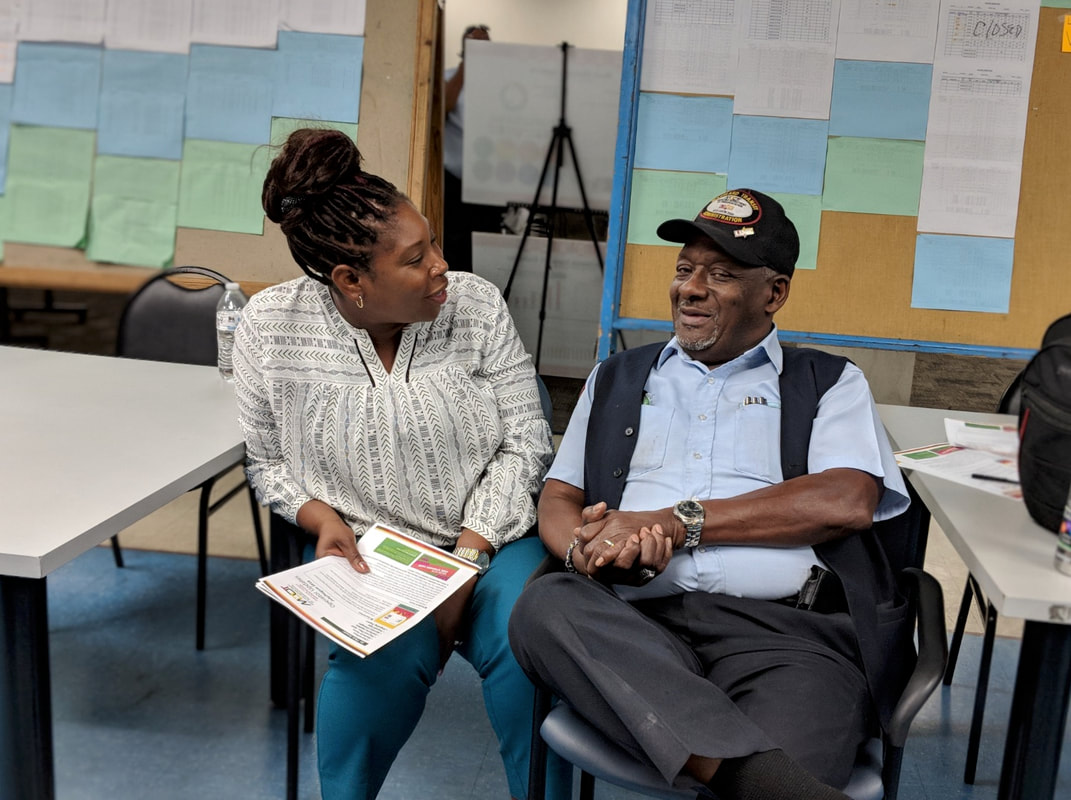
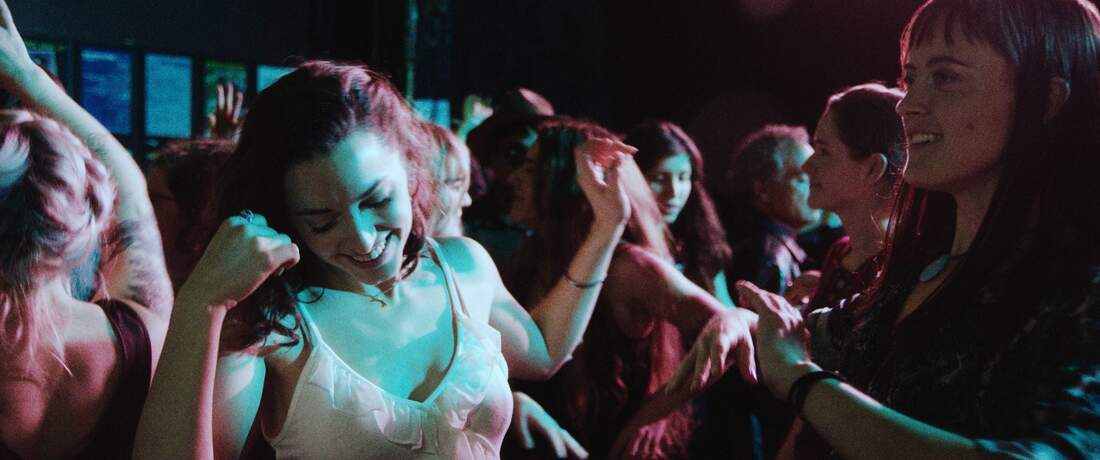
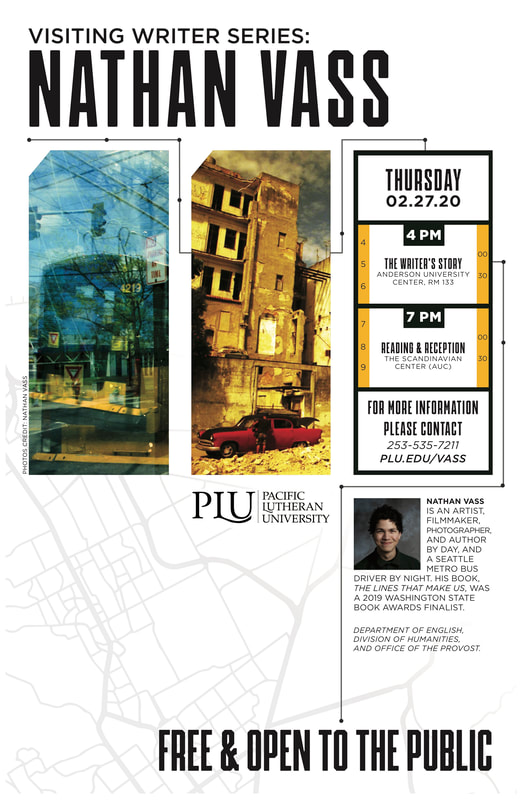
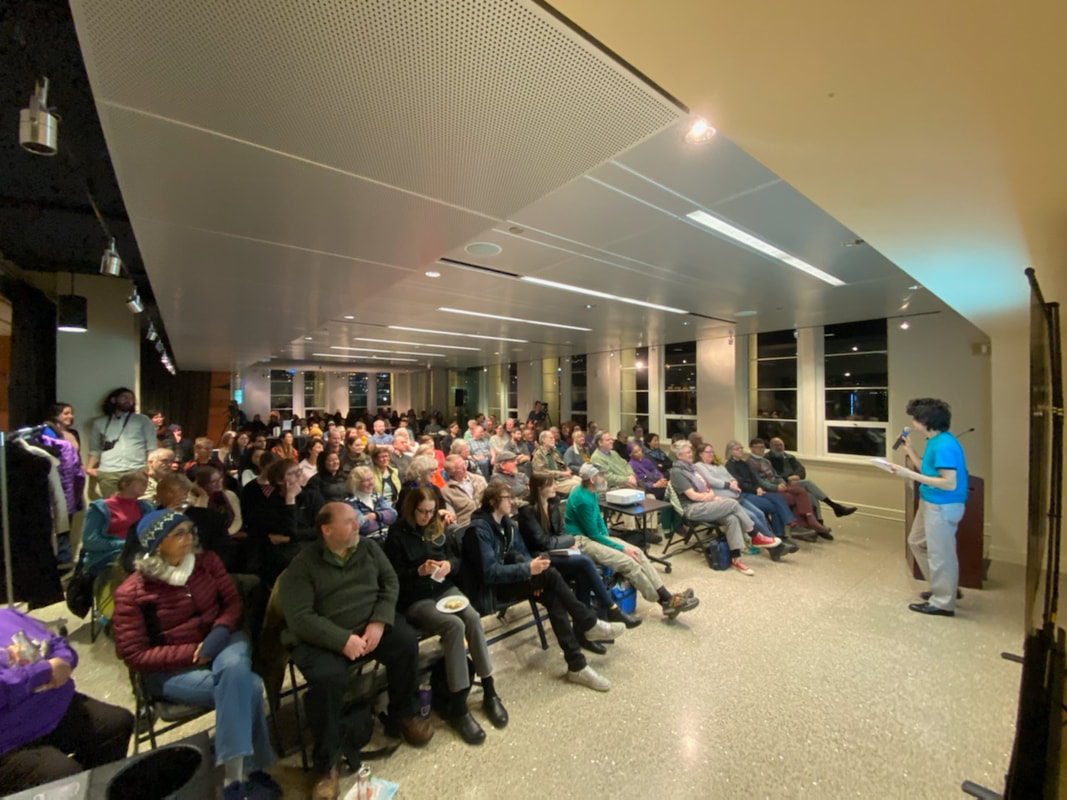
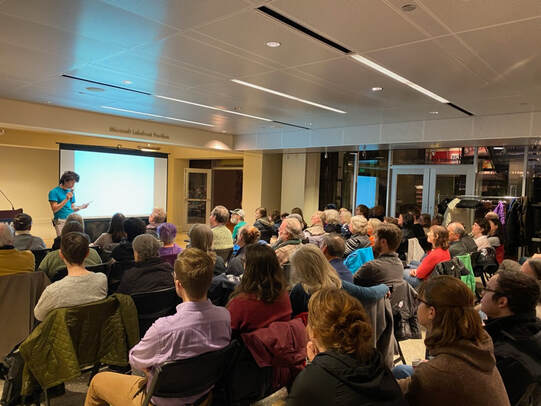
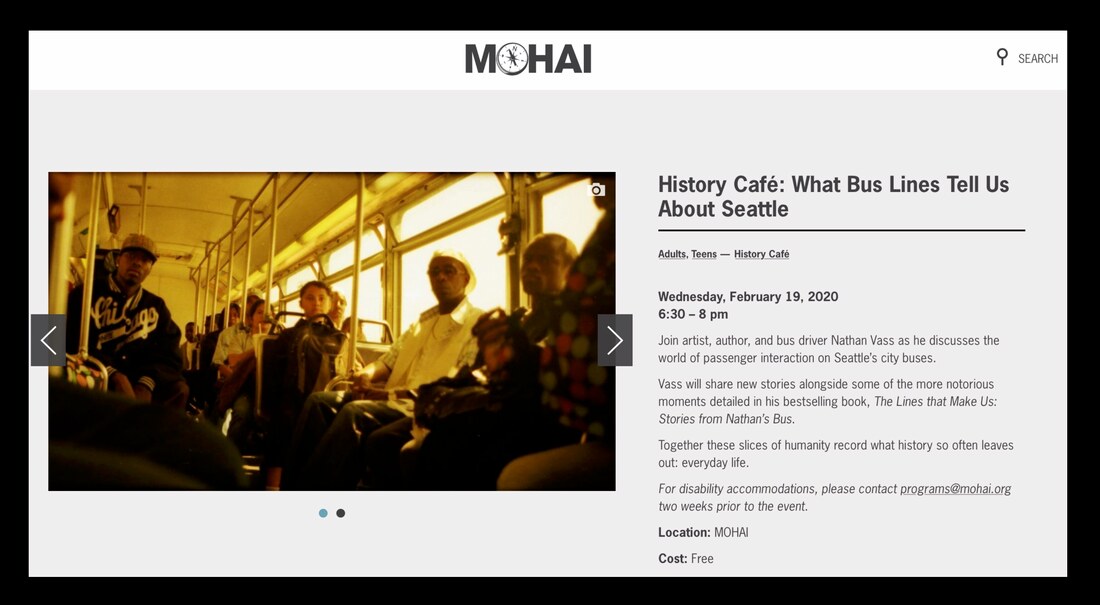
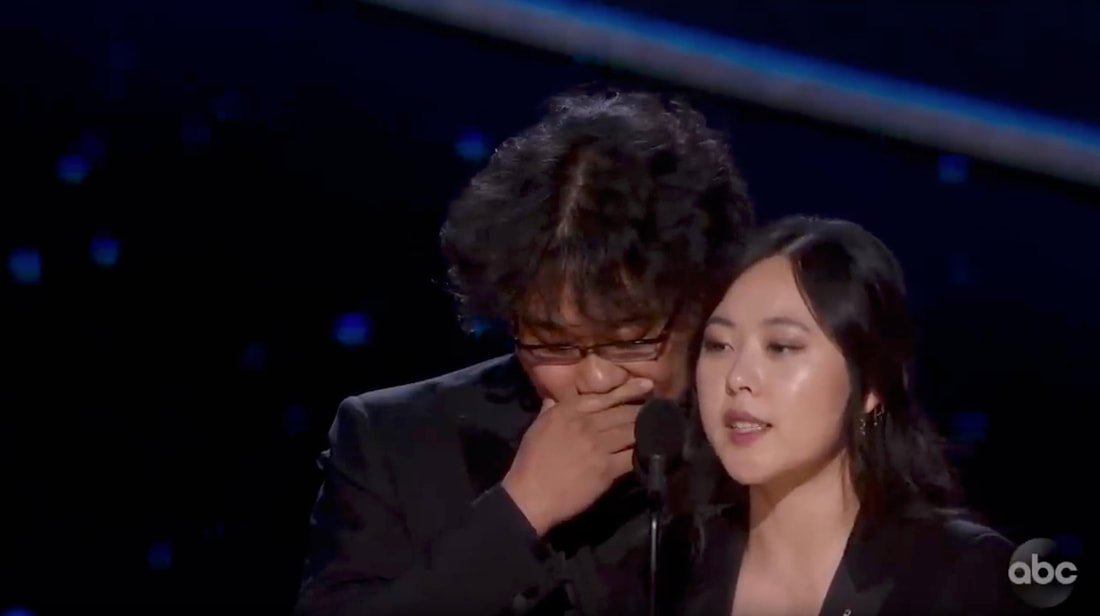
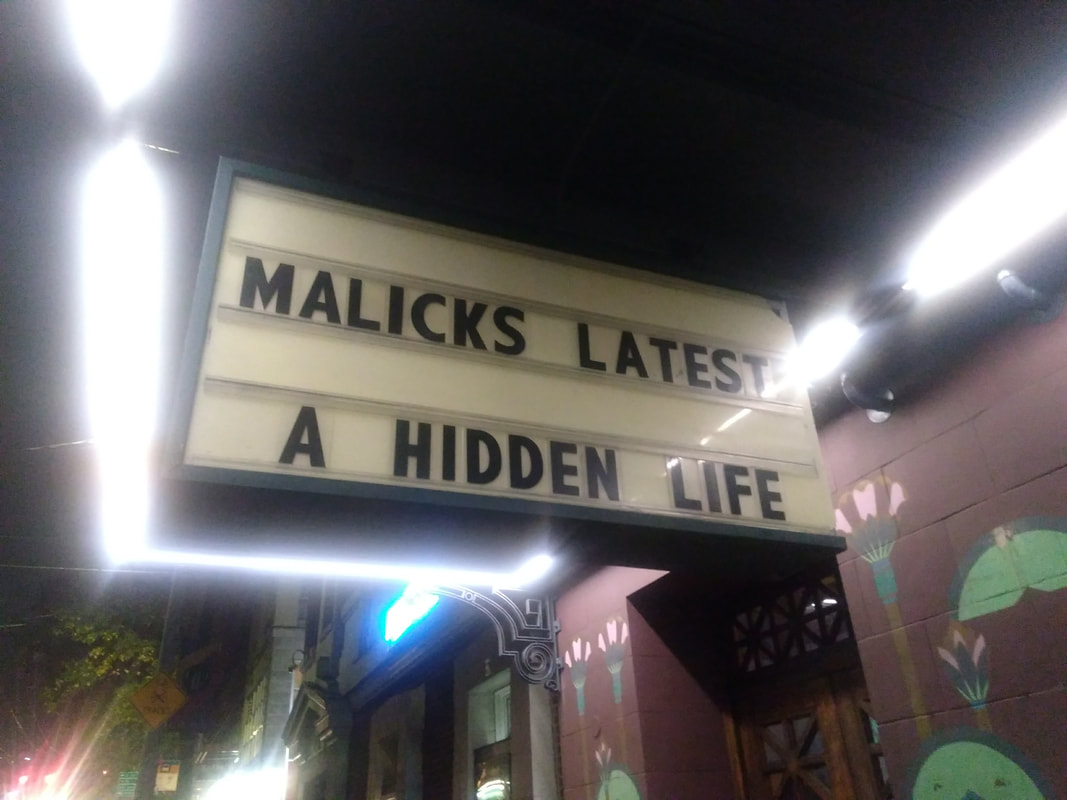
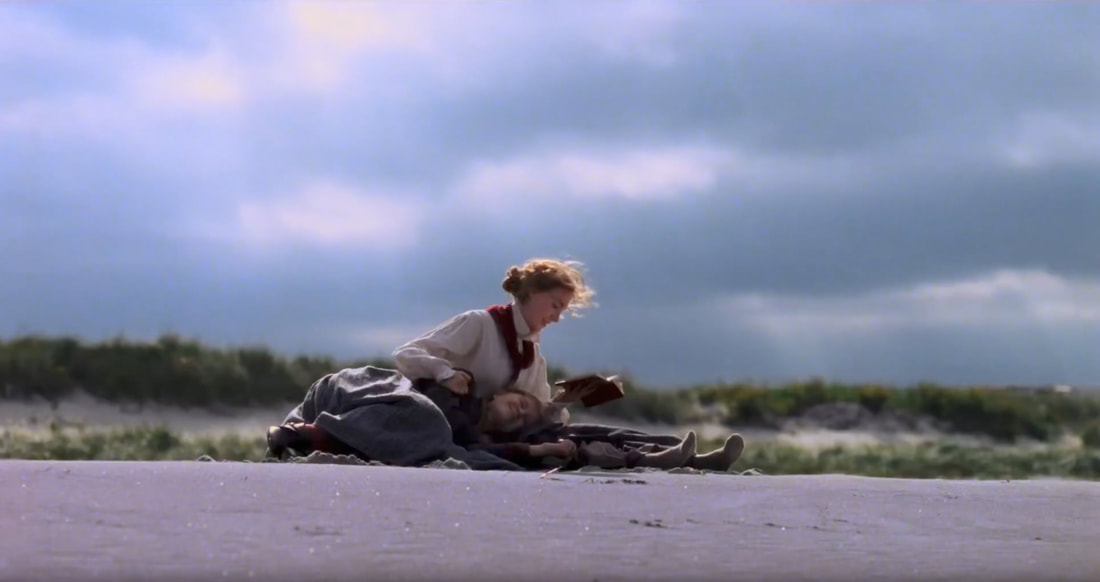
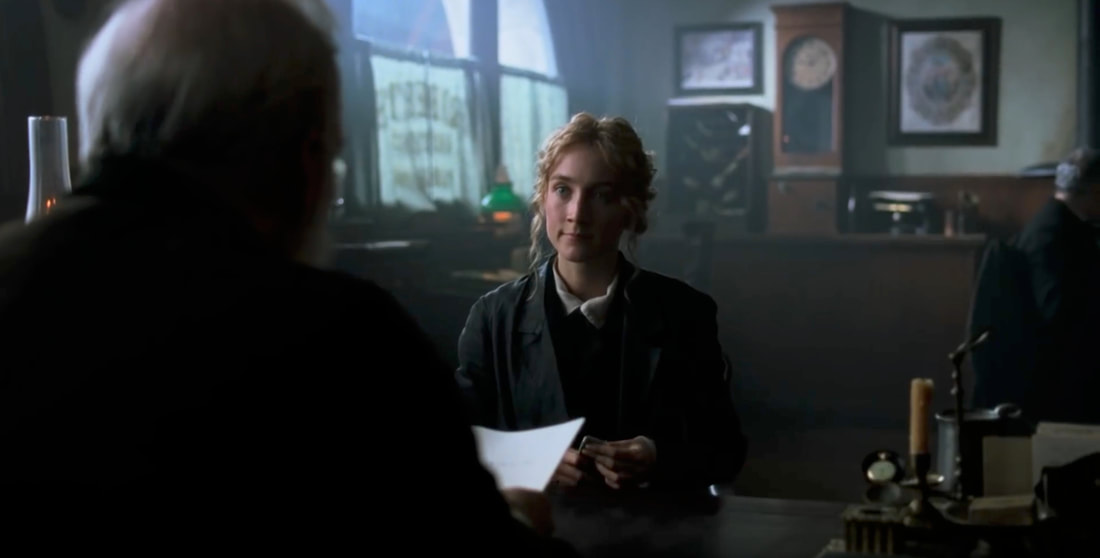
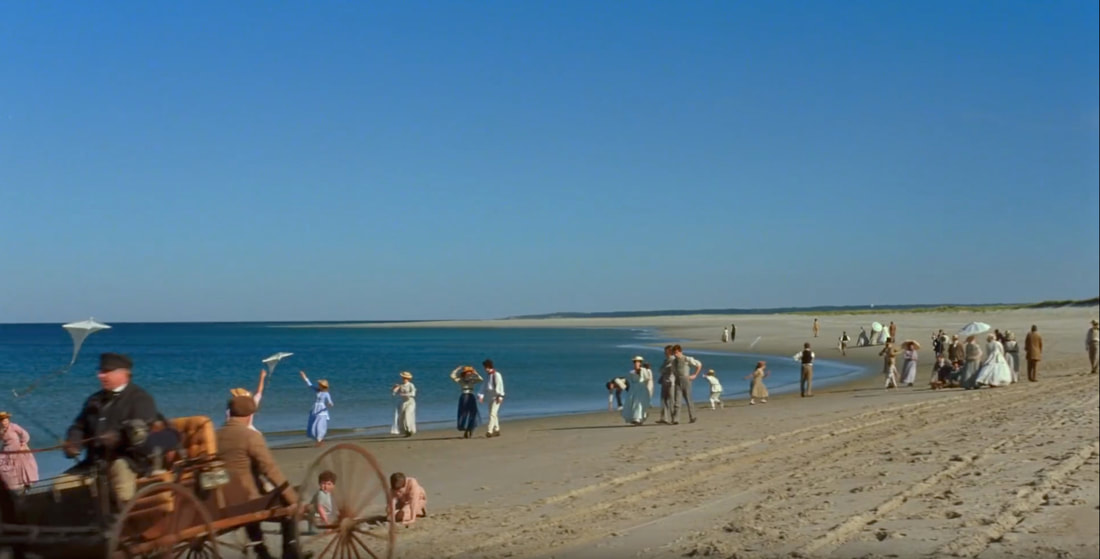
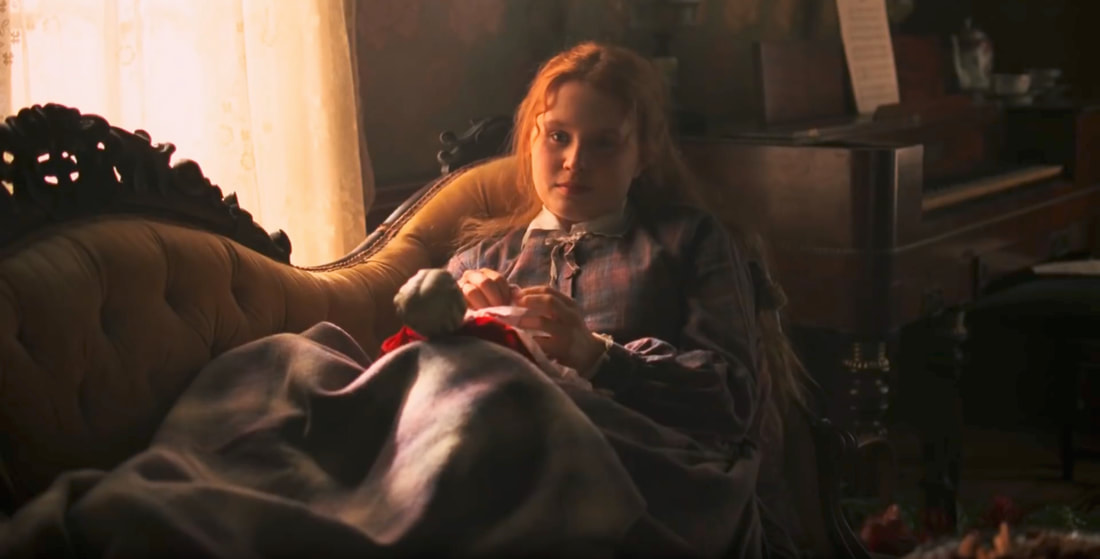
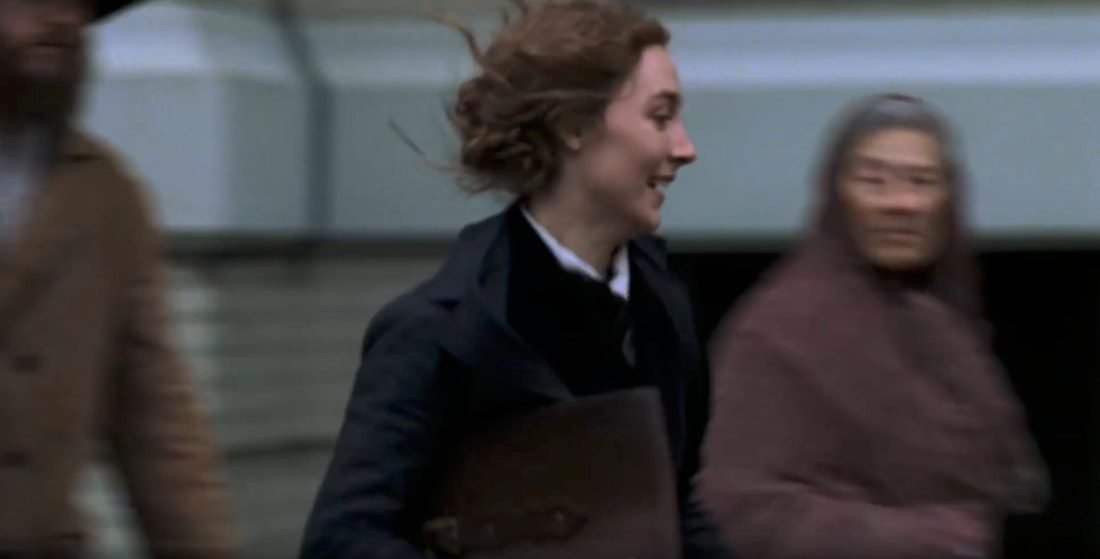
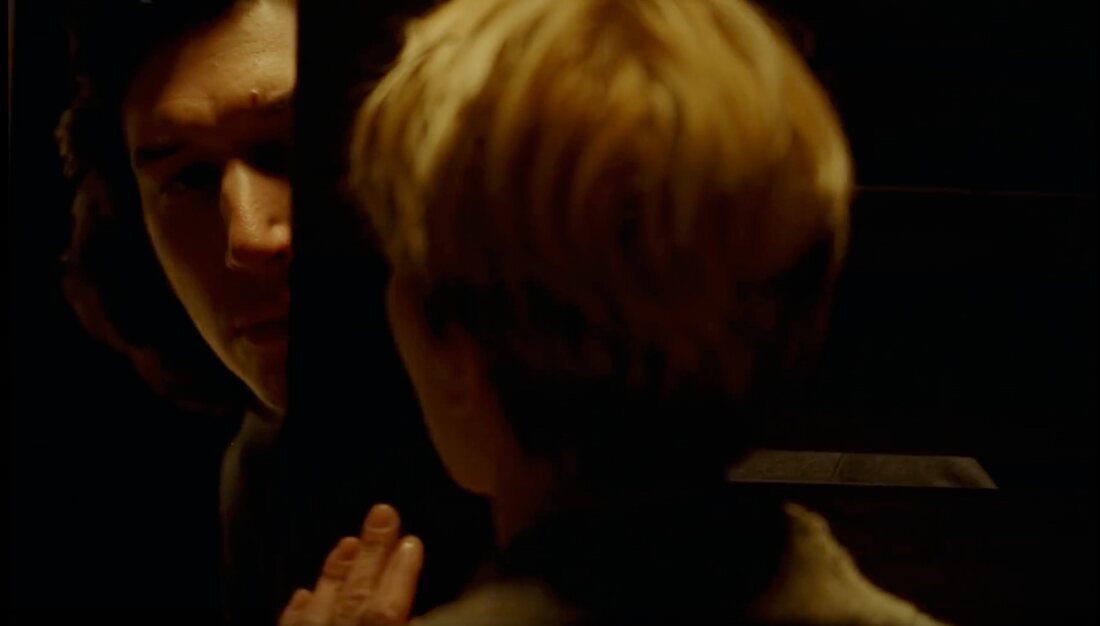
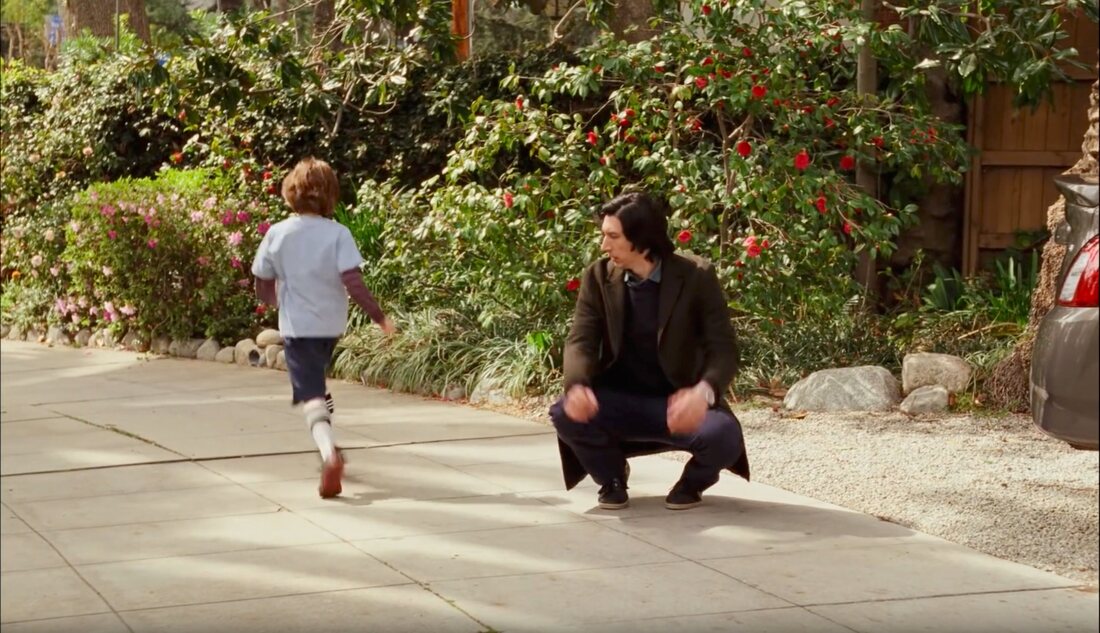
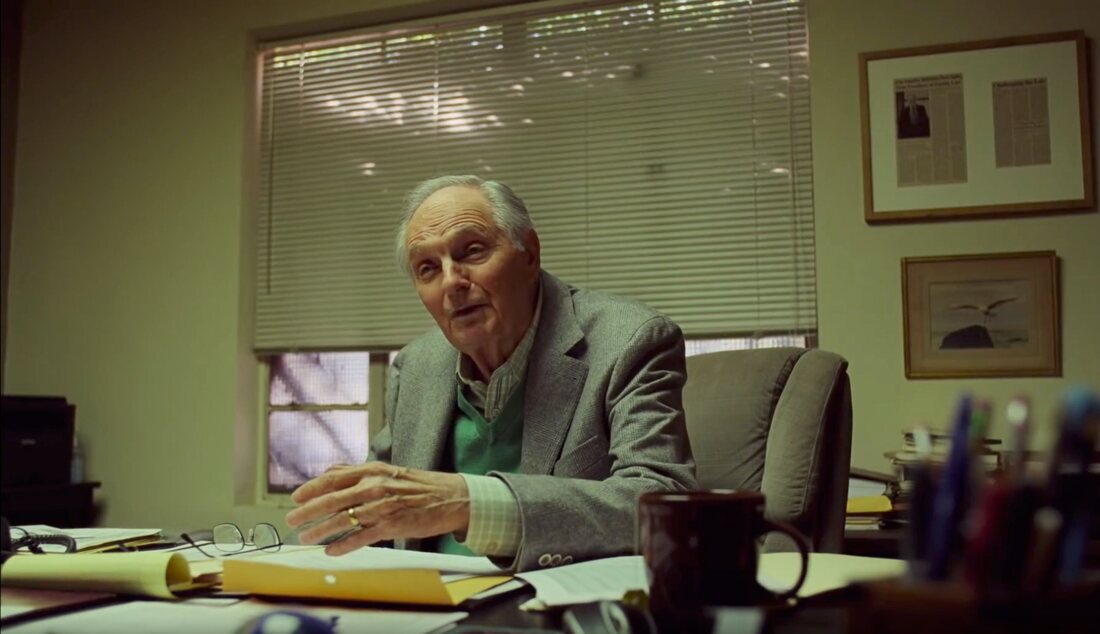
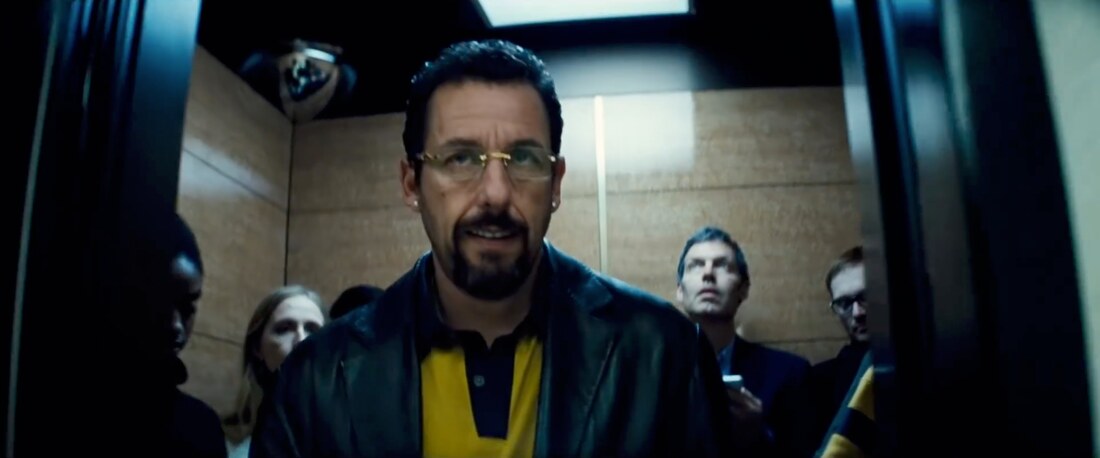
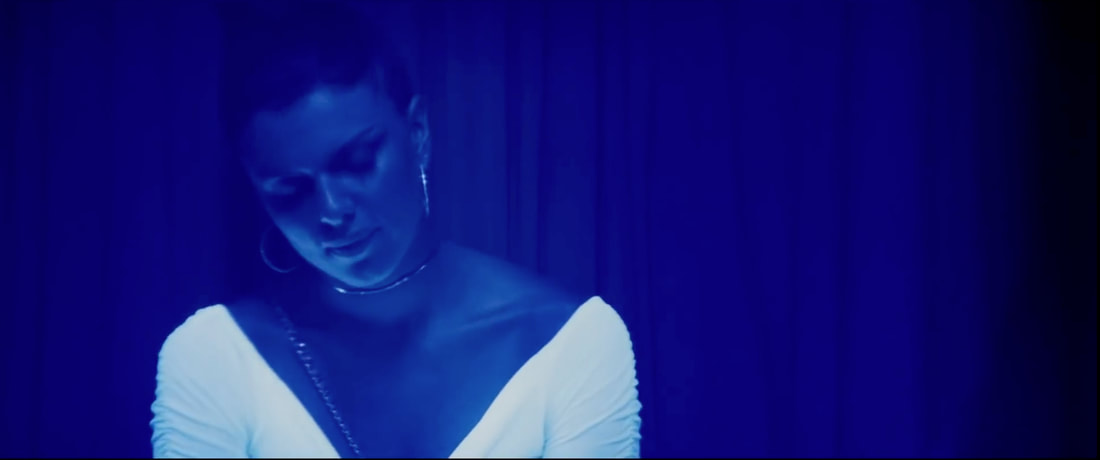
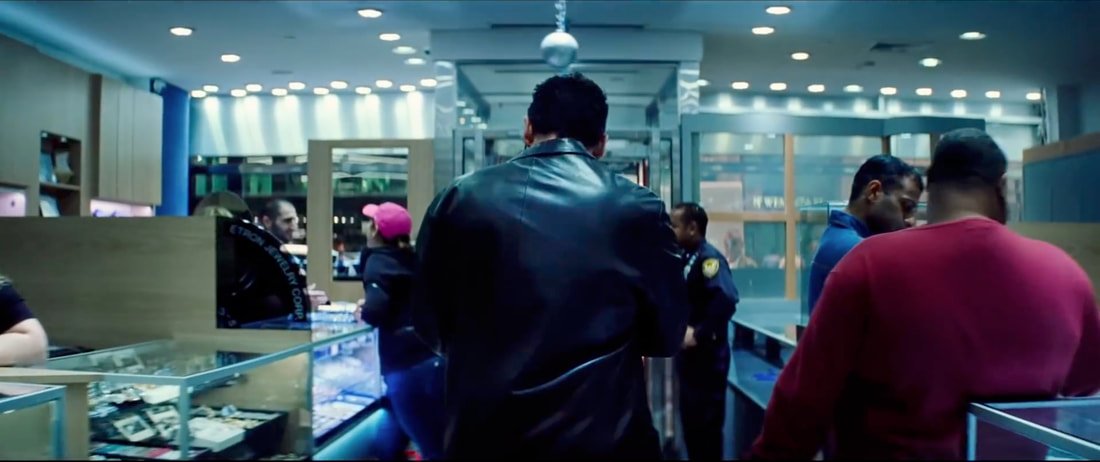
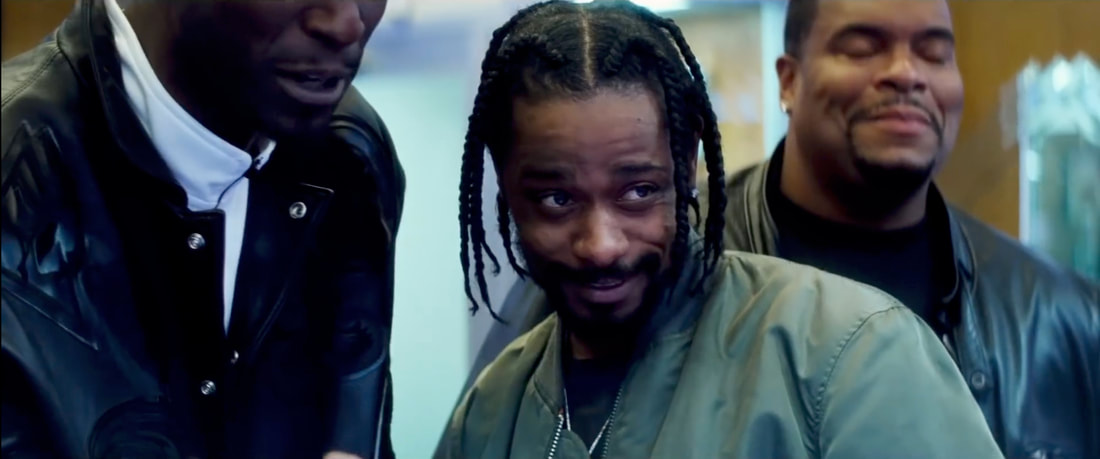
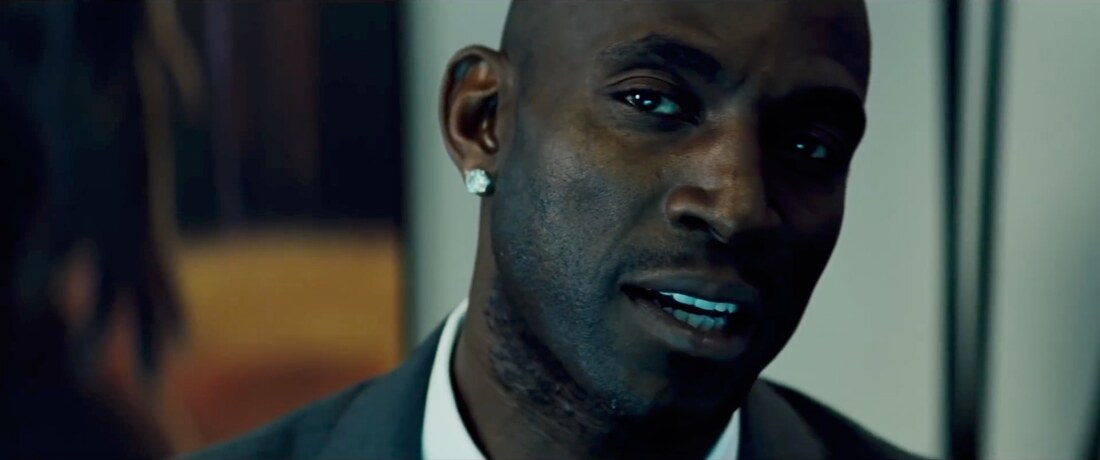
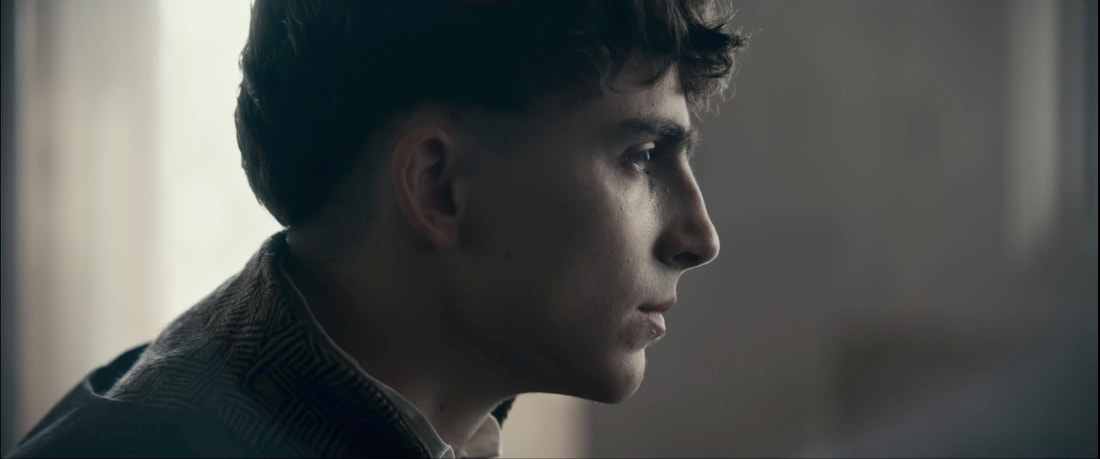
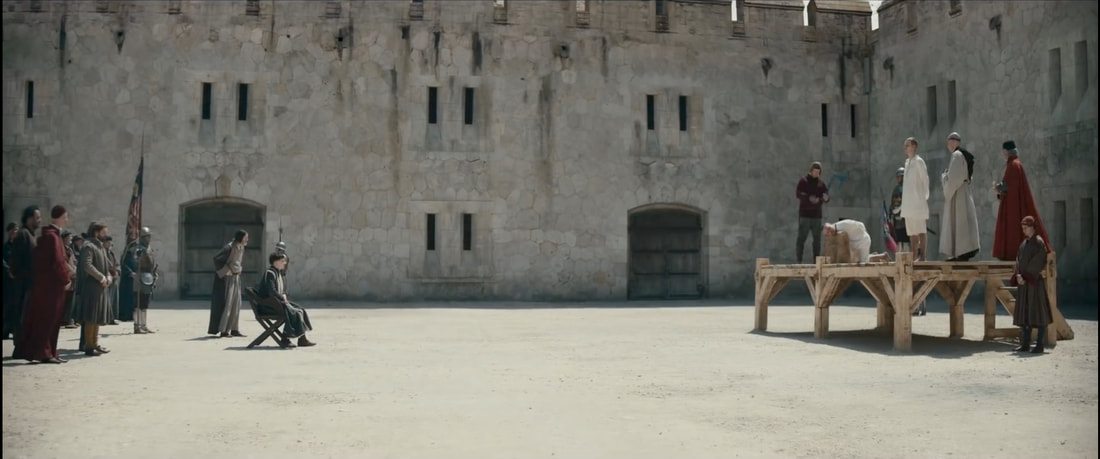
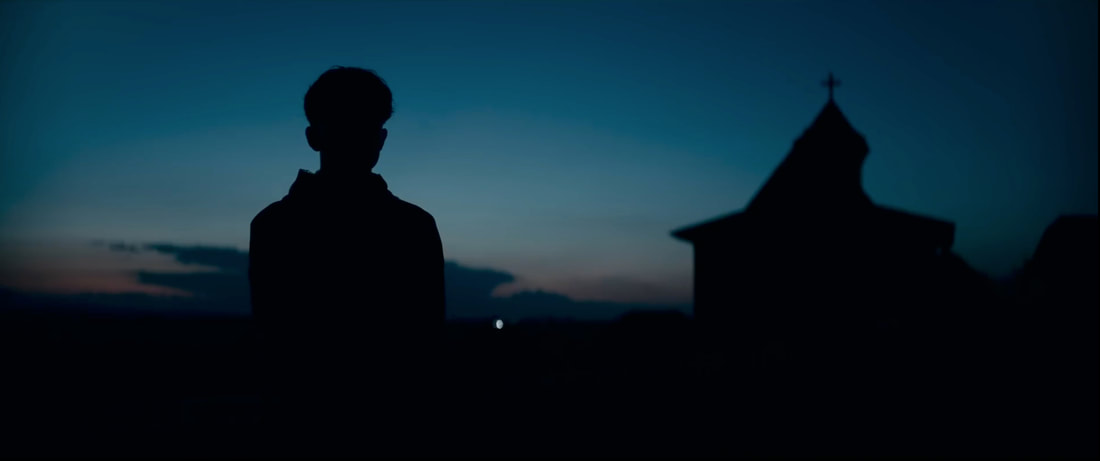
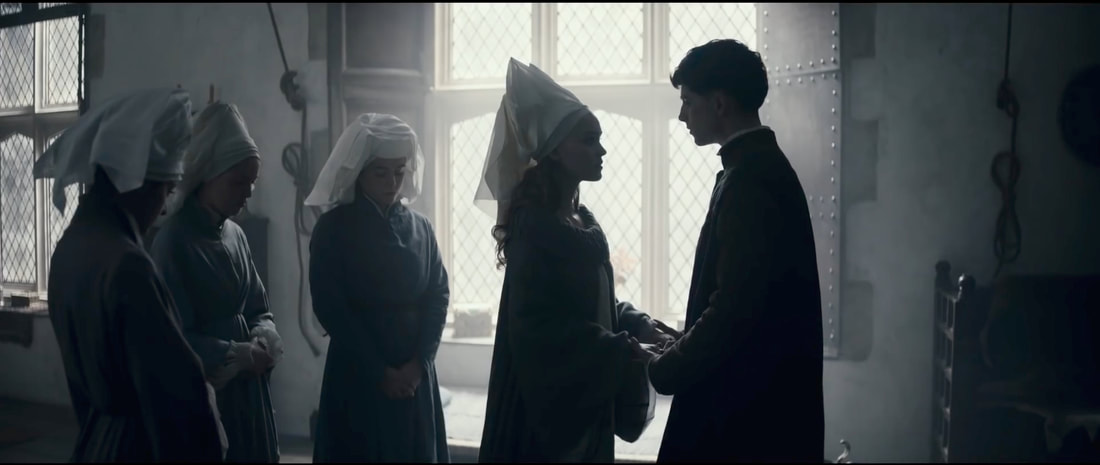

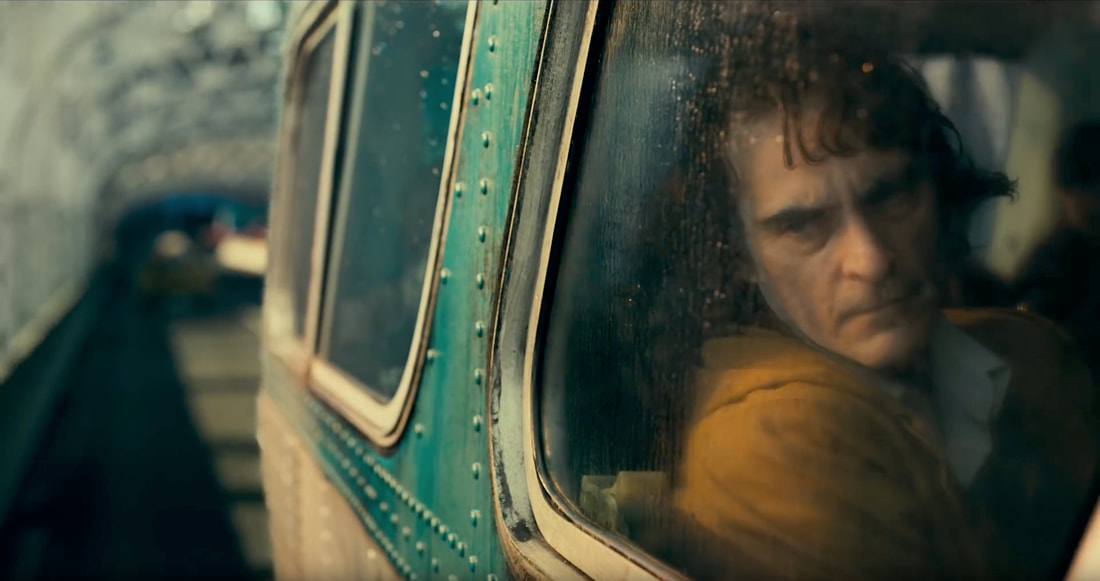
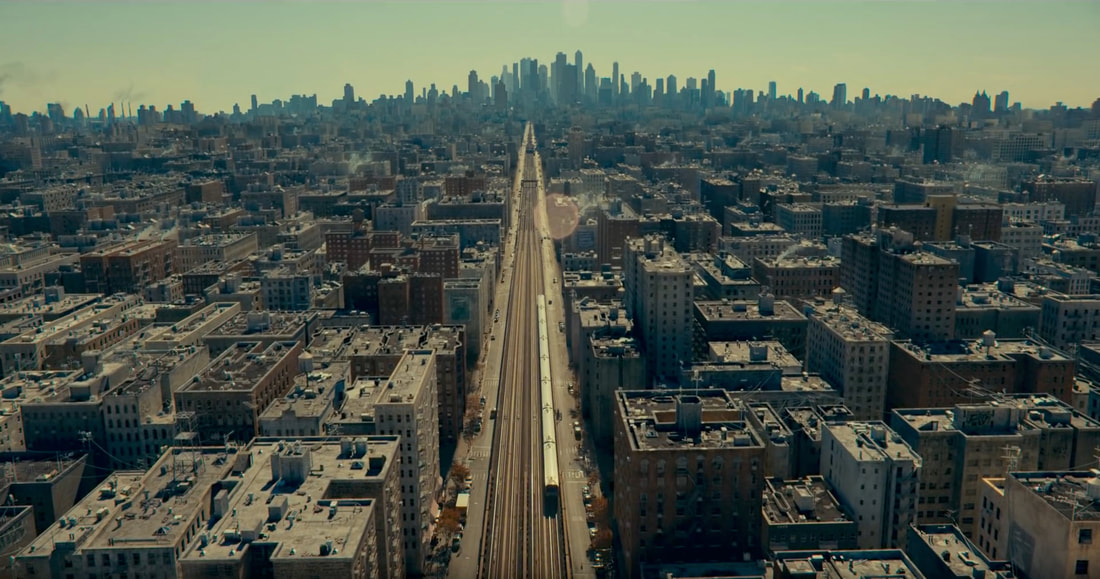
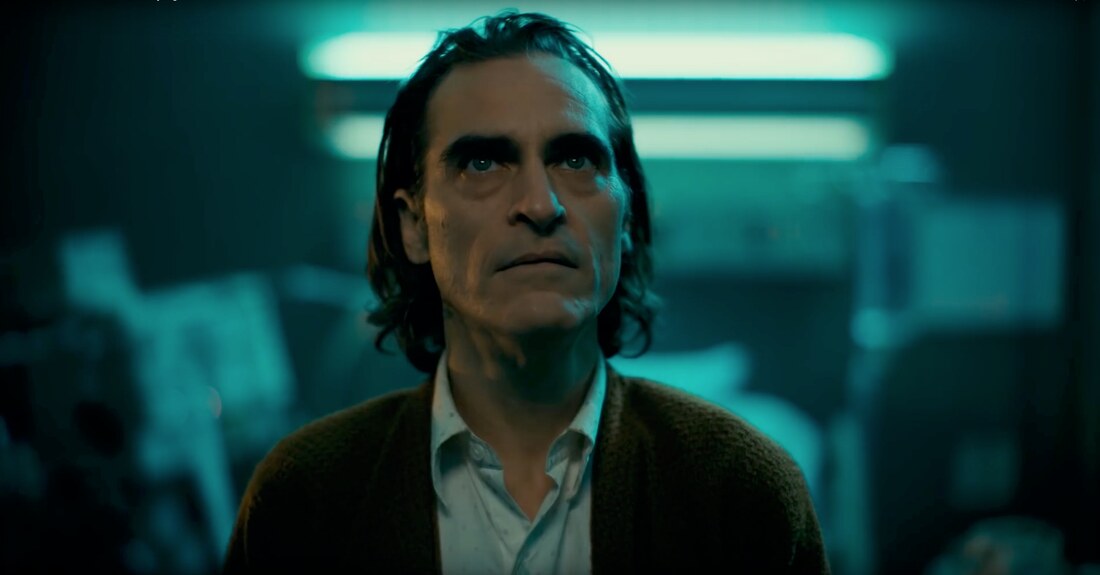
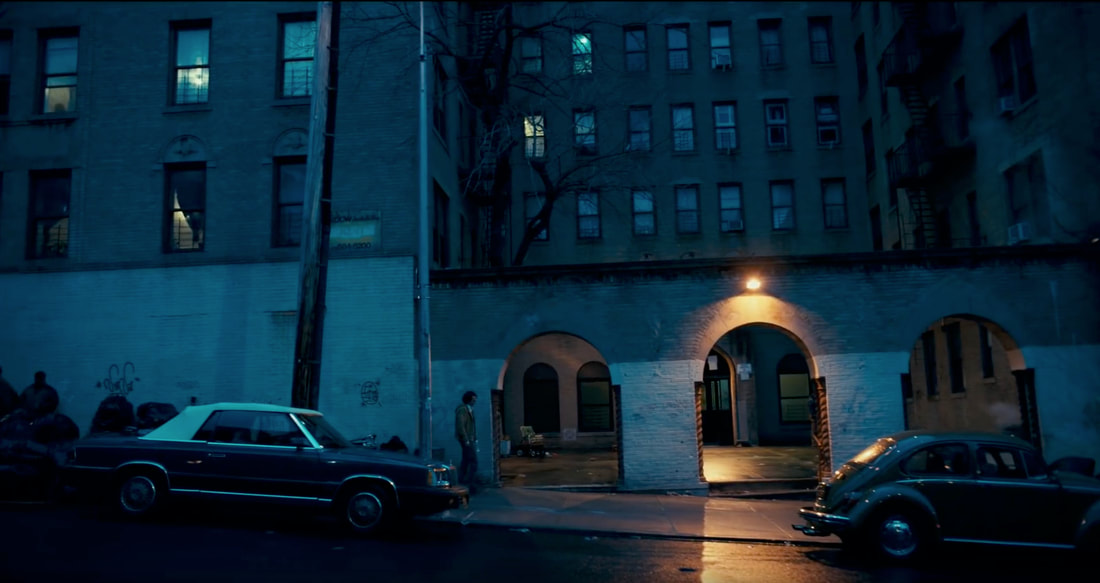
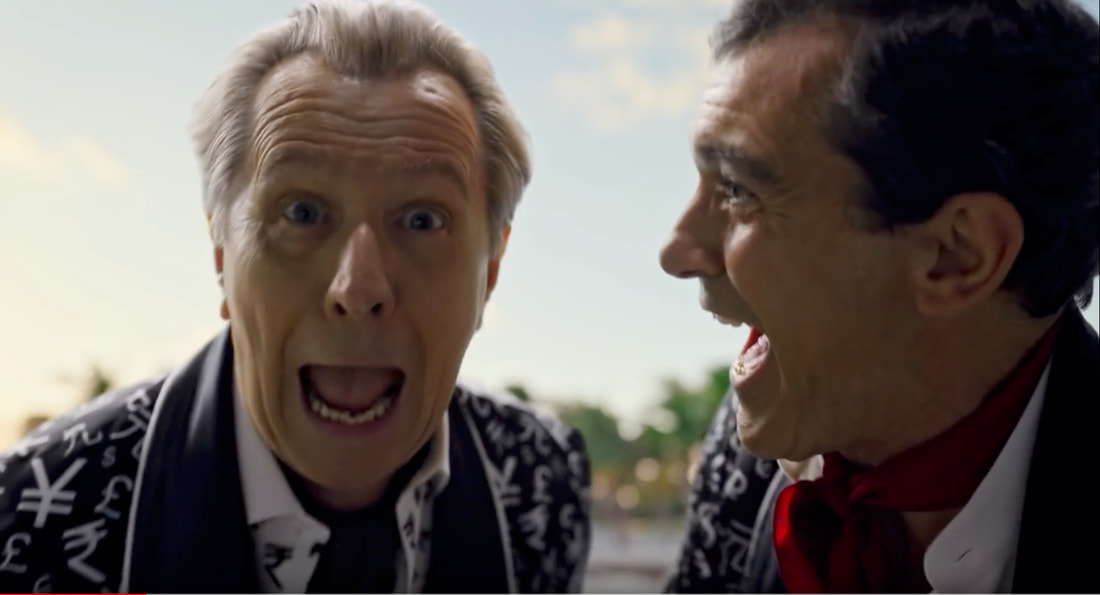
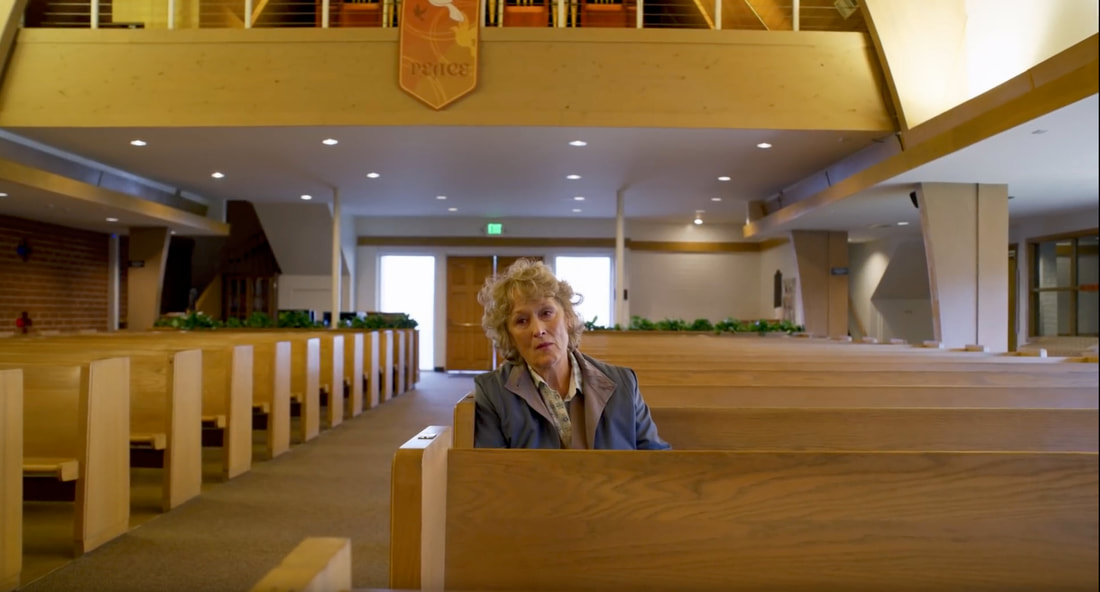
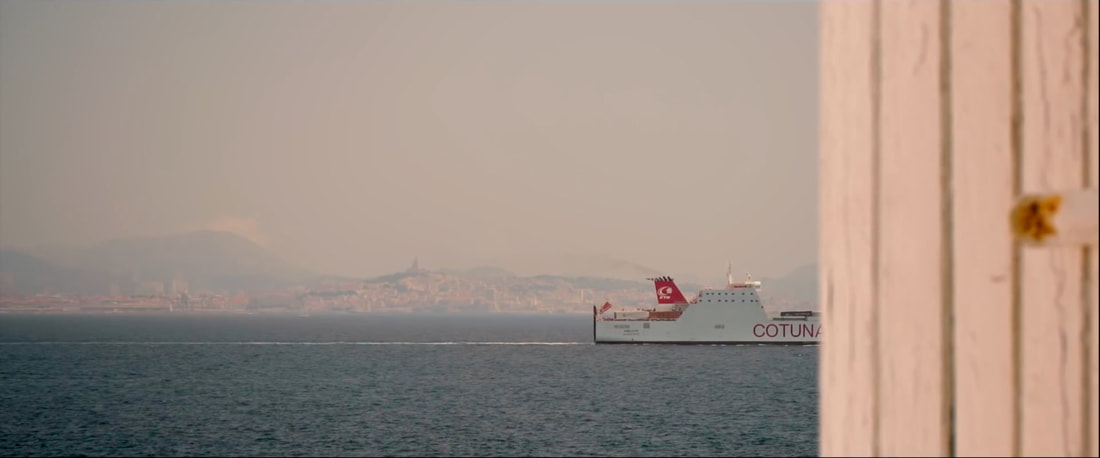
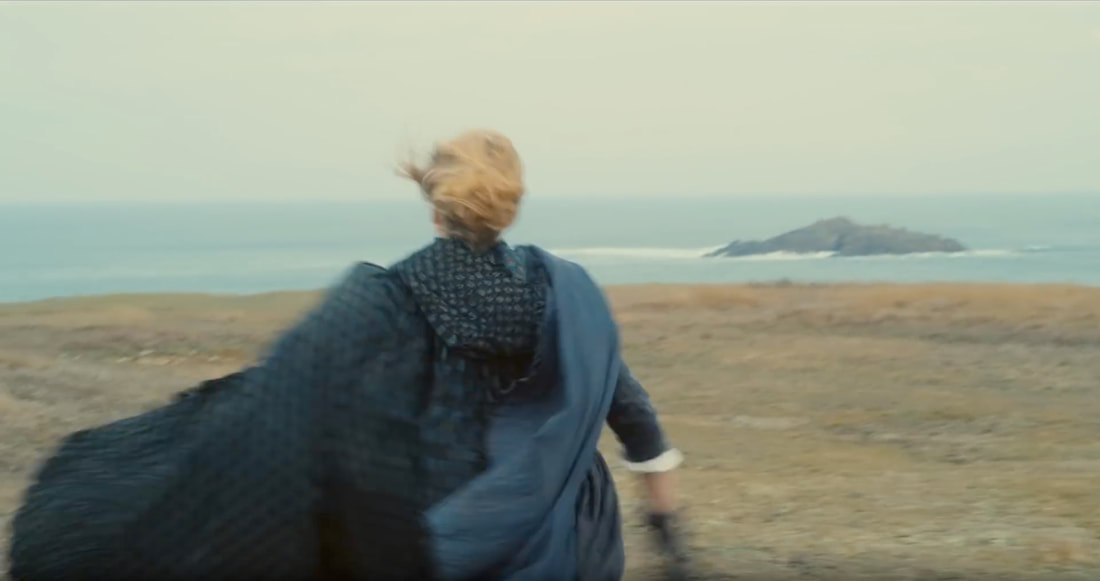
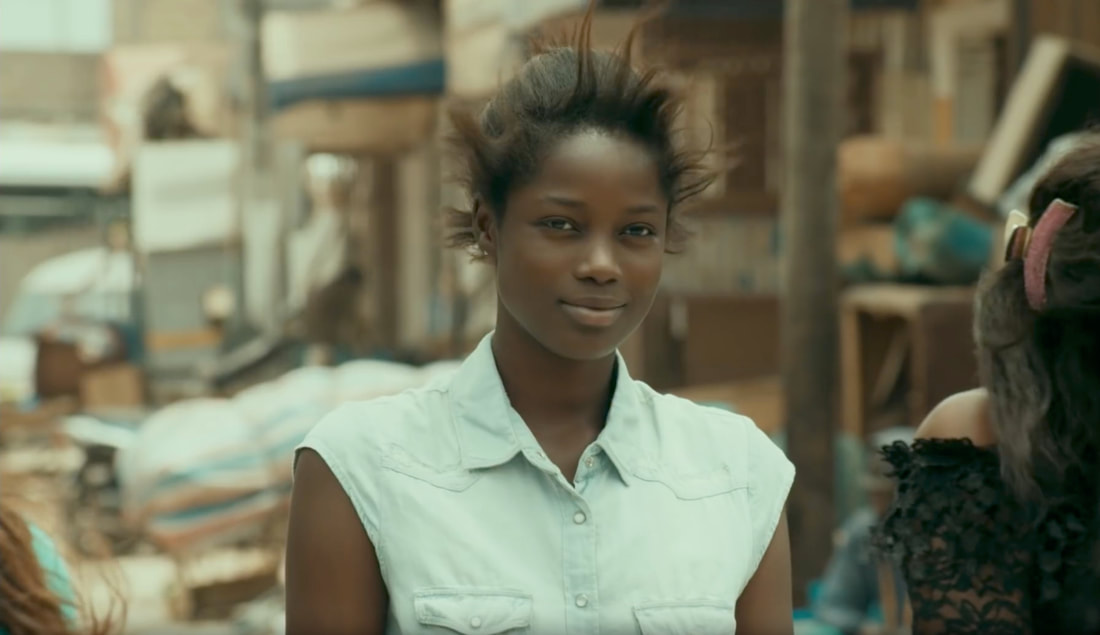
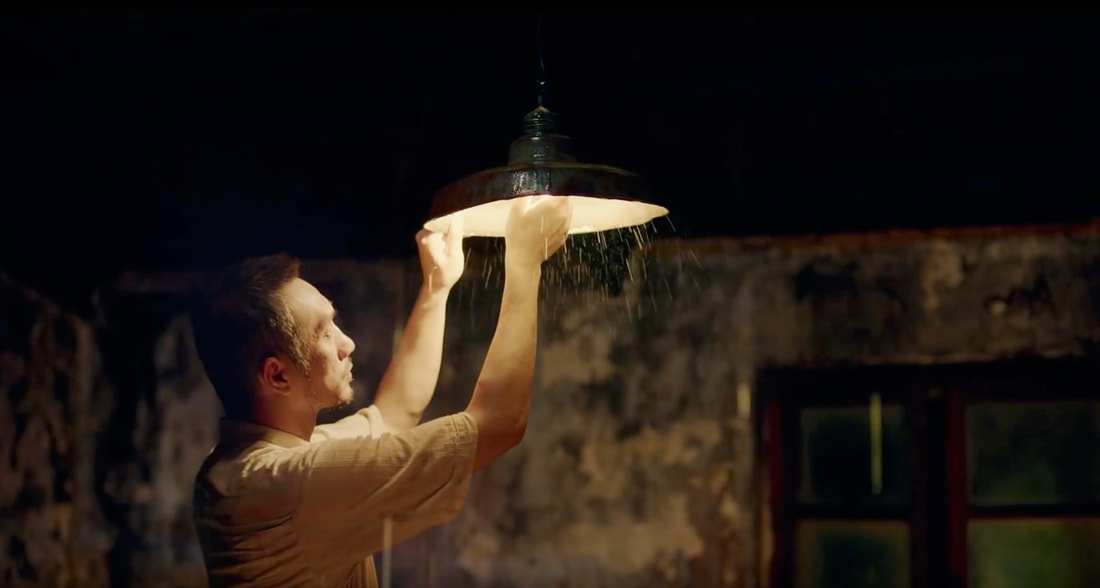
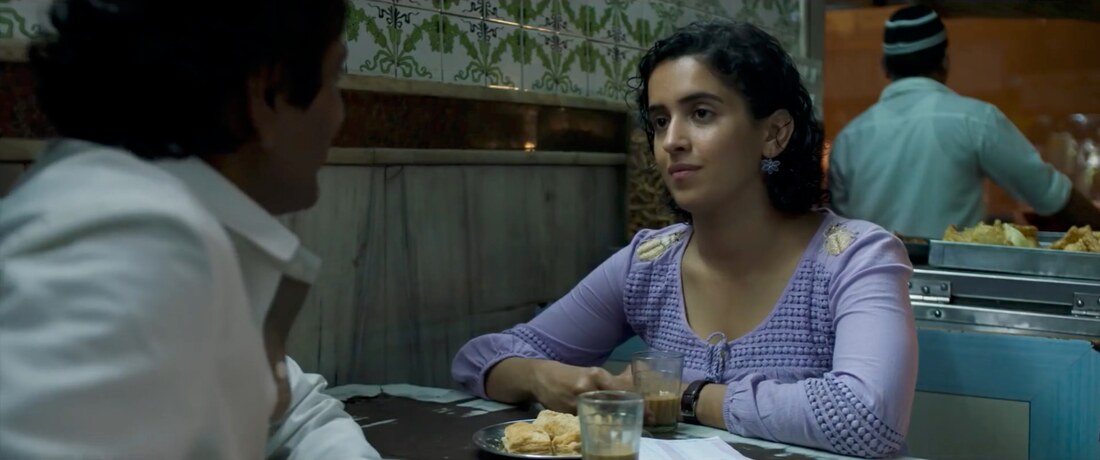
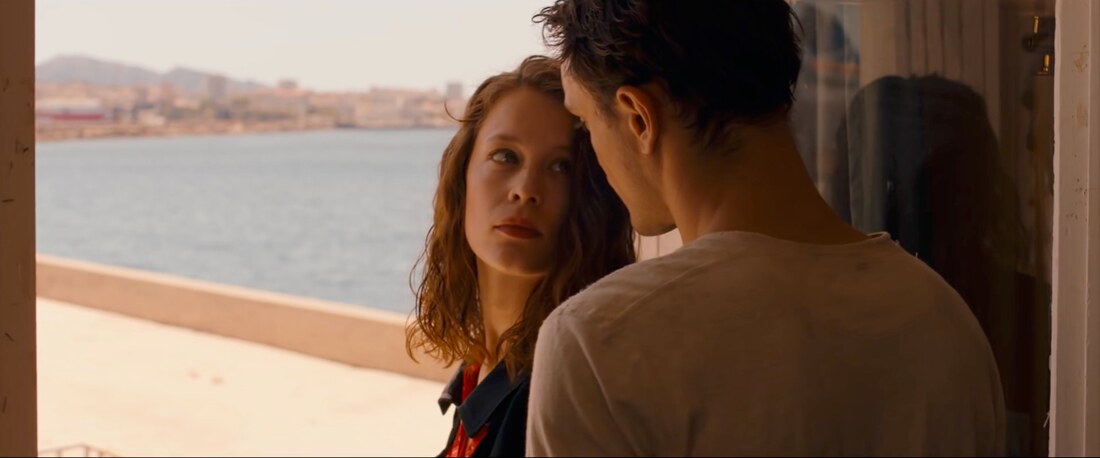
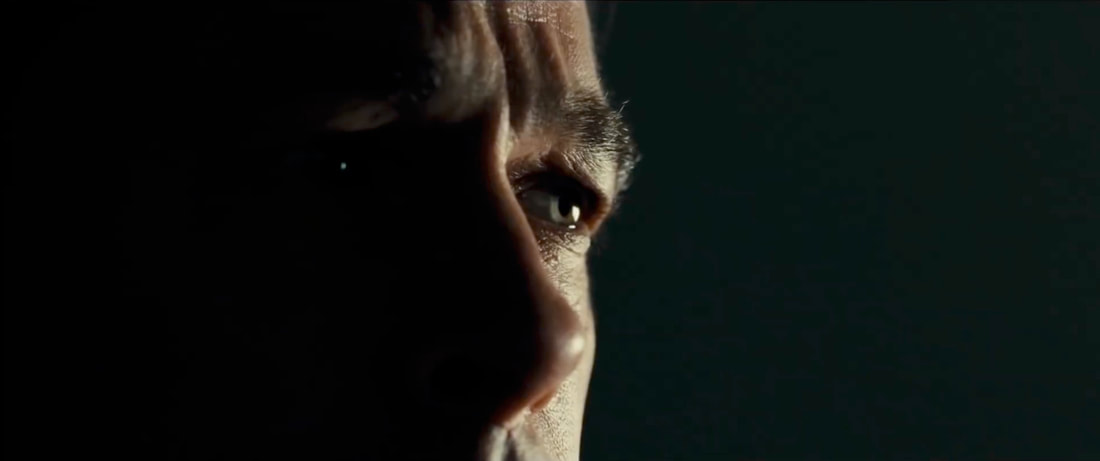
 RSS Feed
RSS Feed
